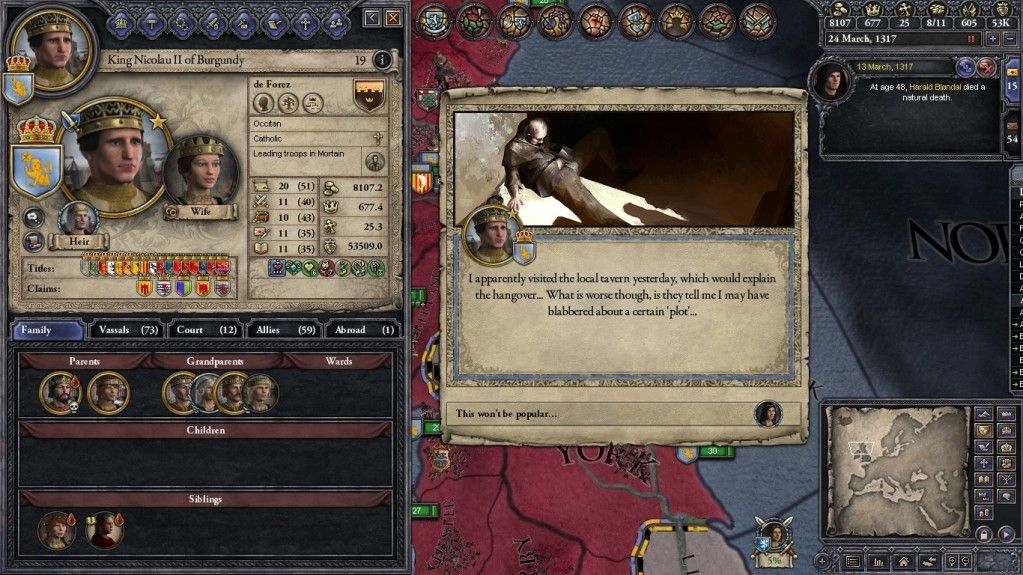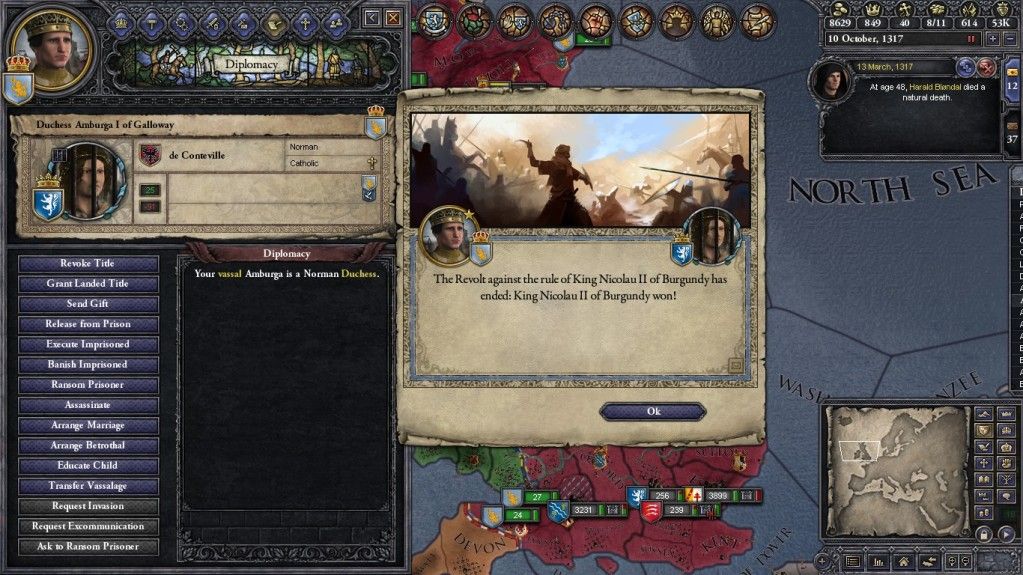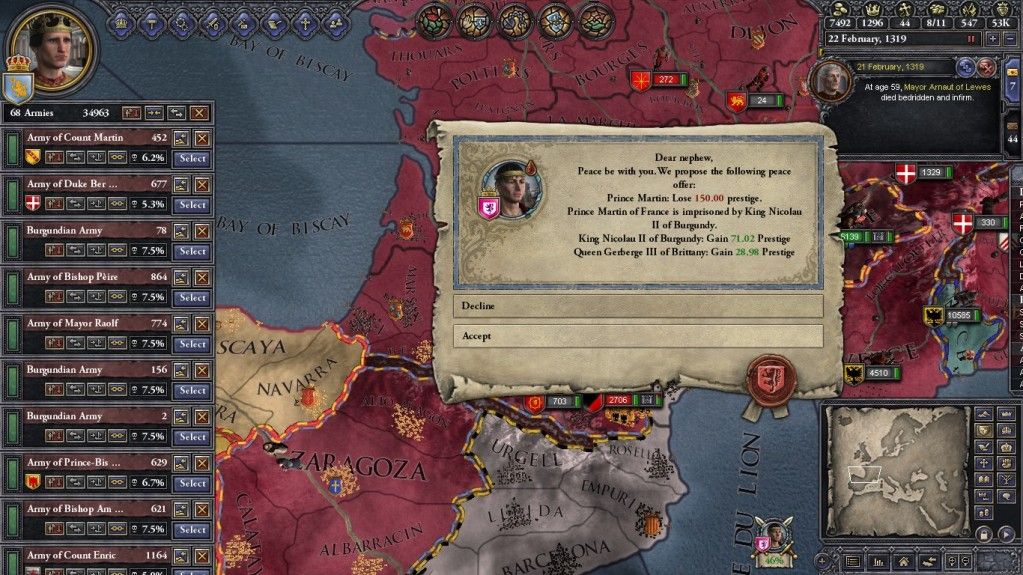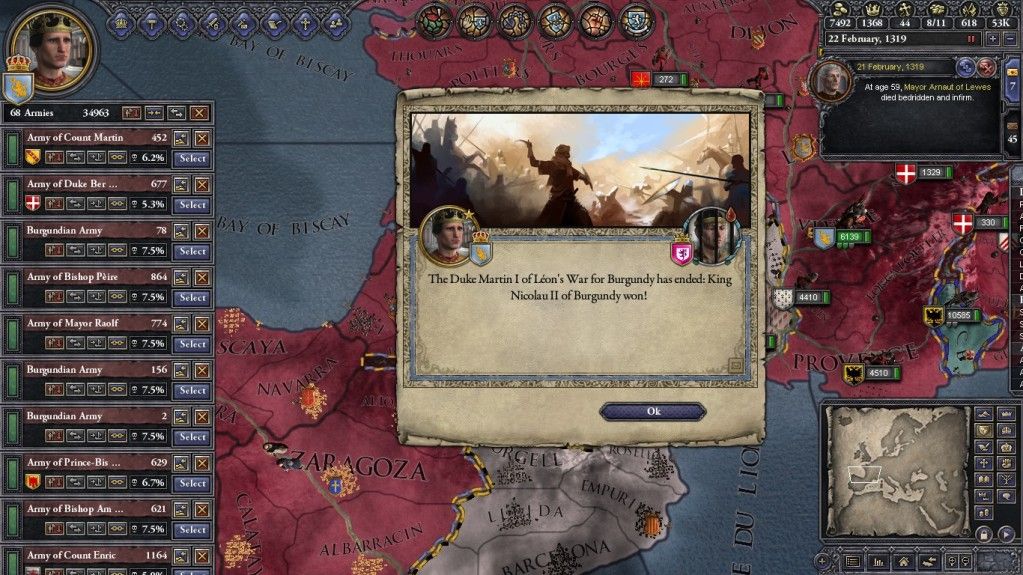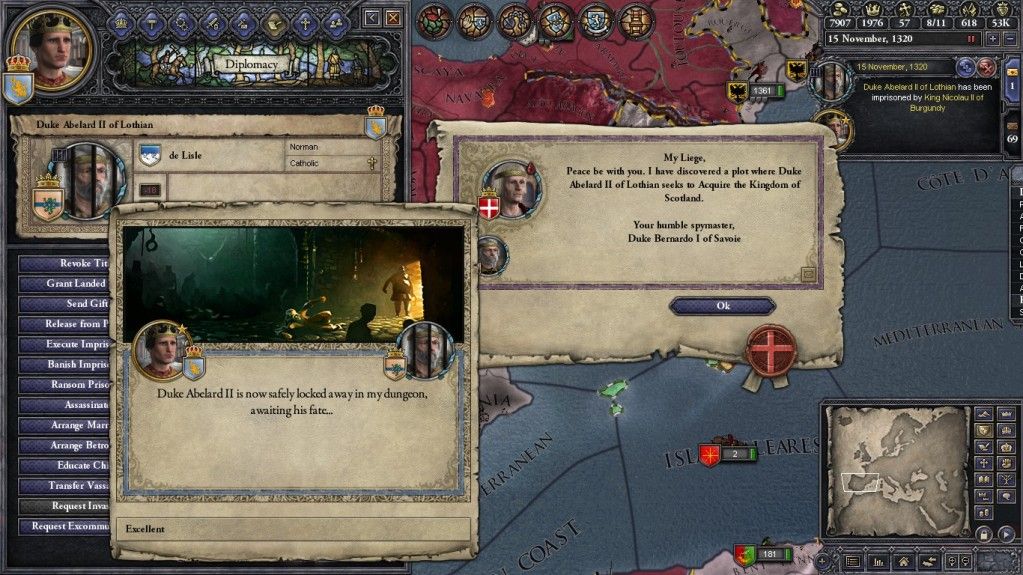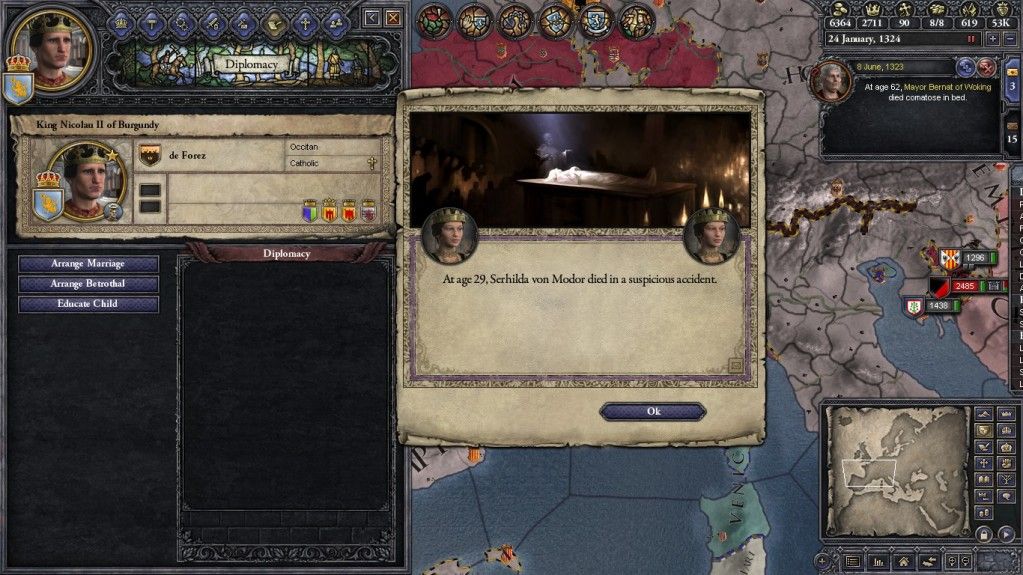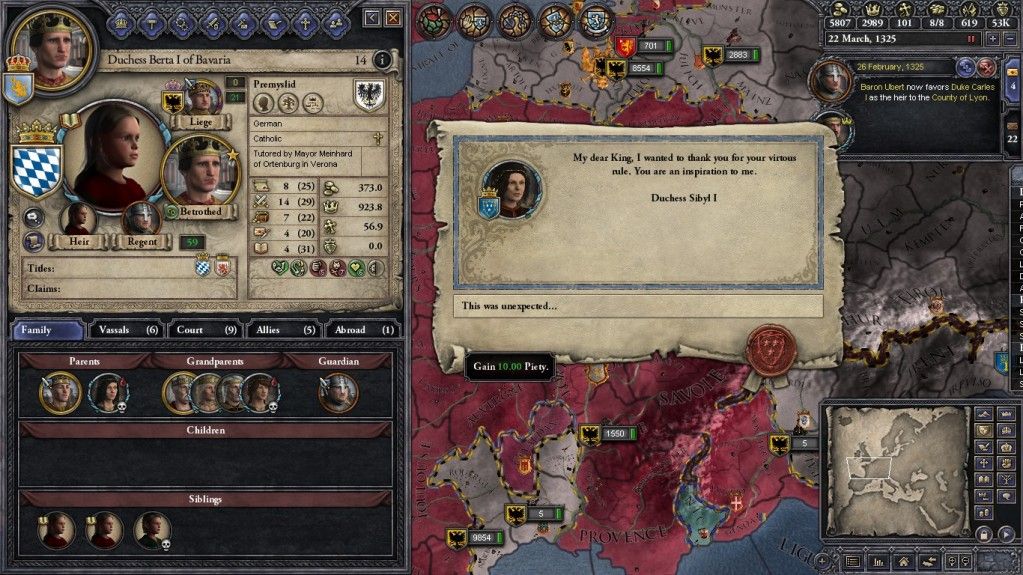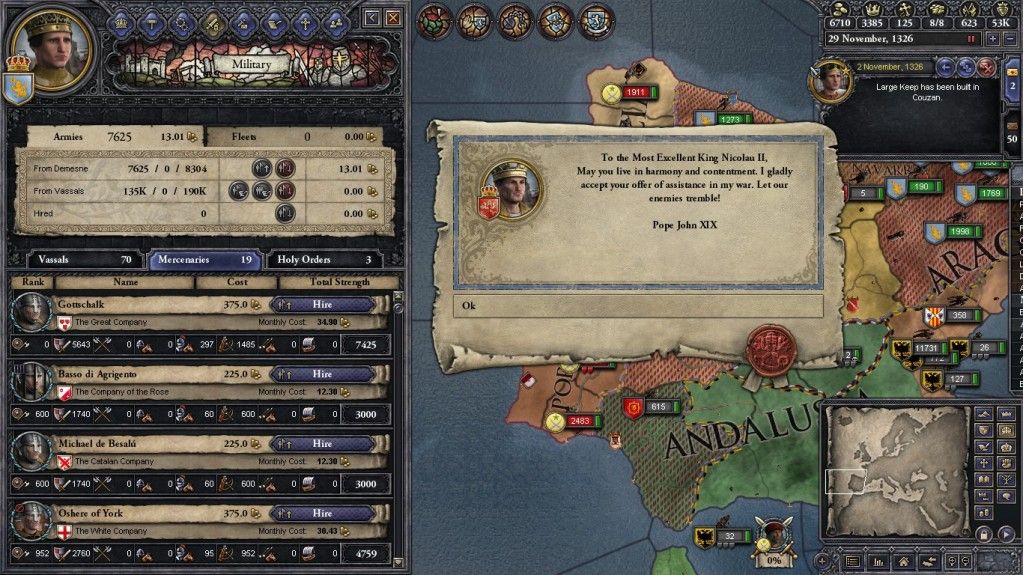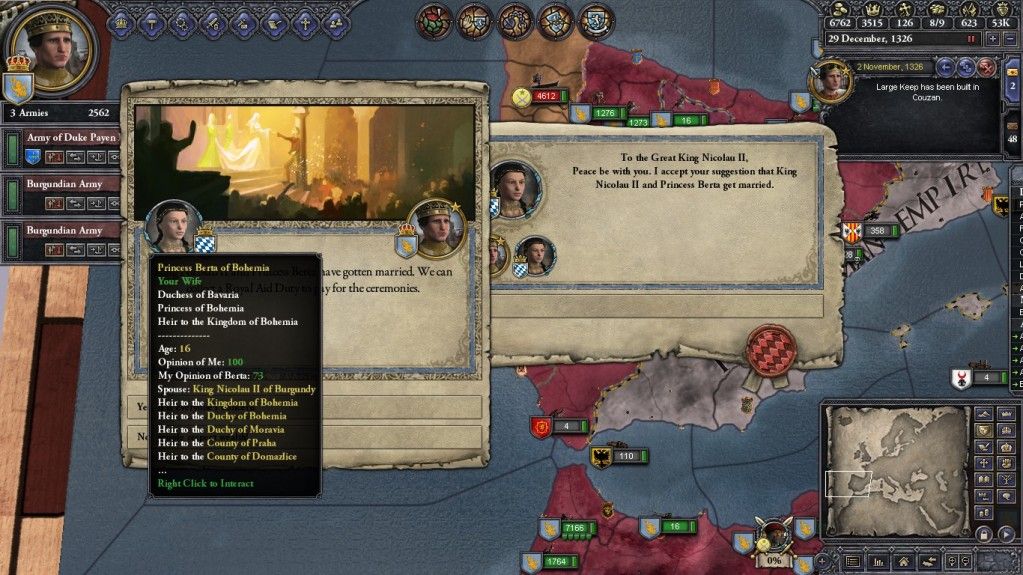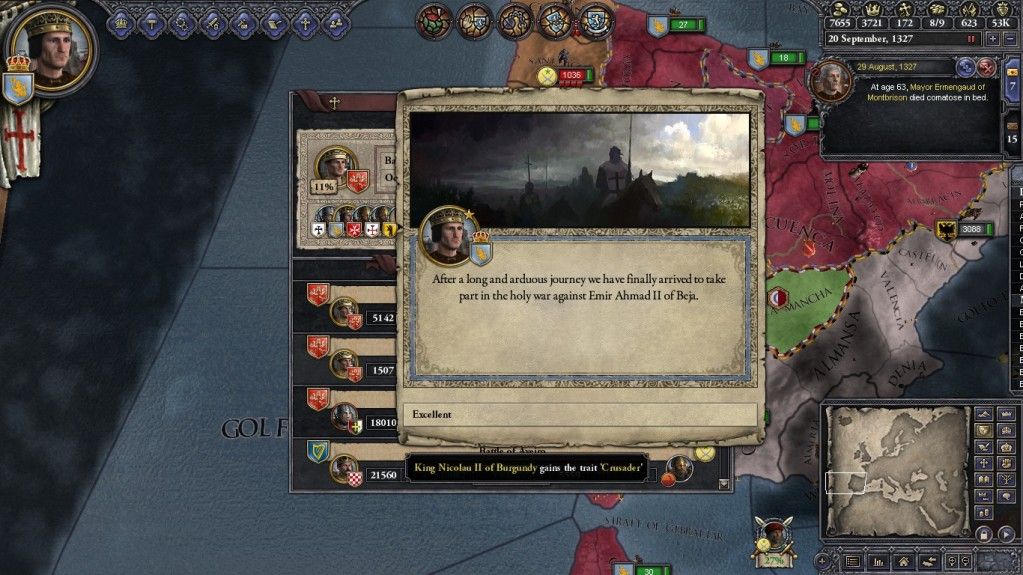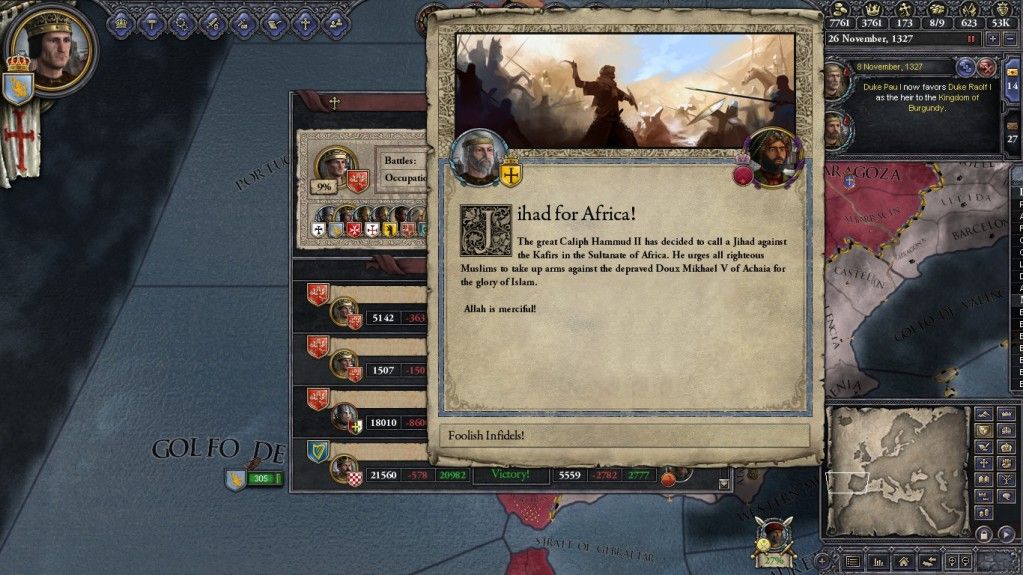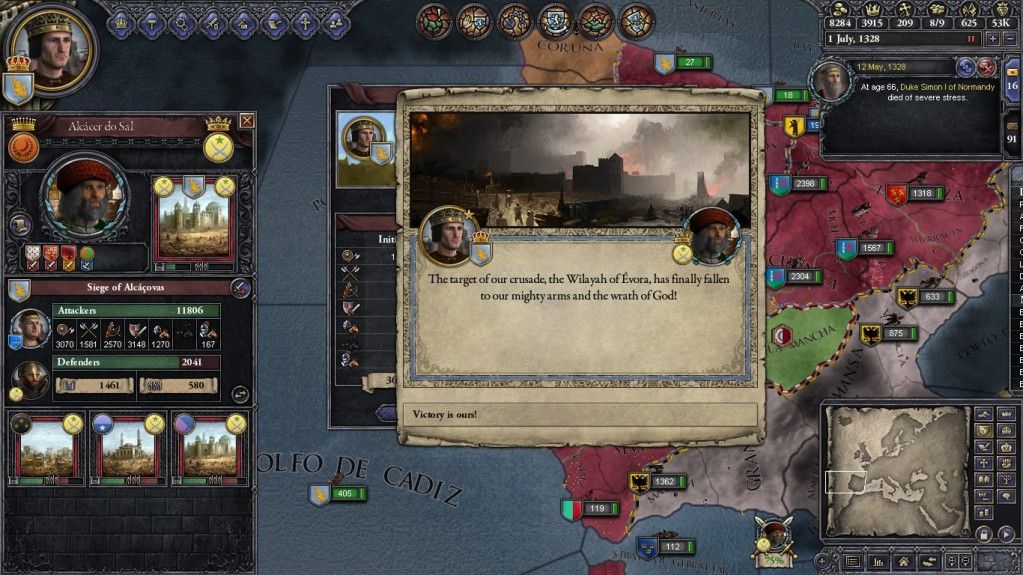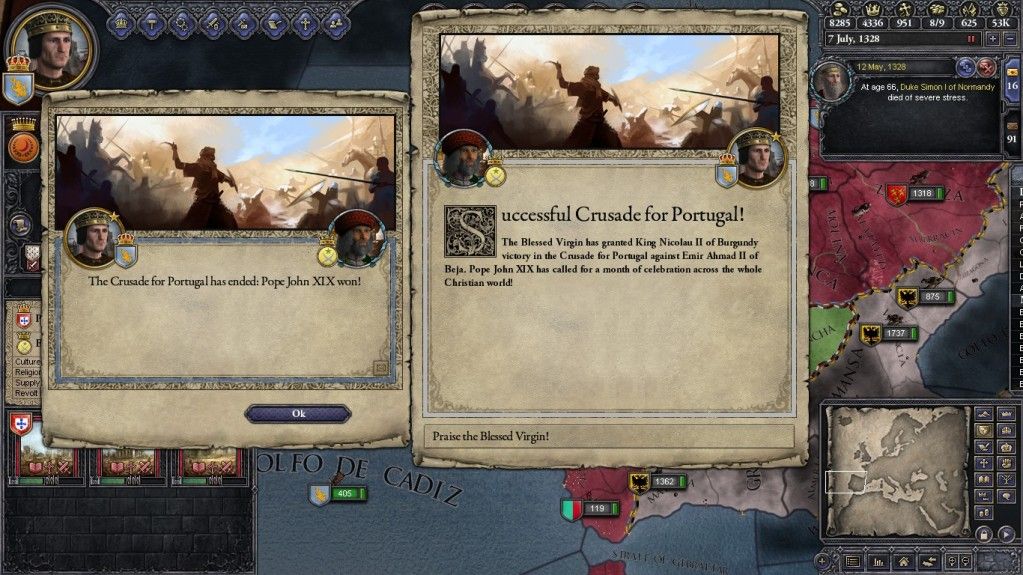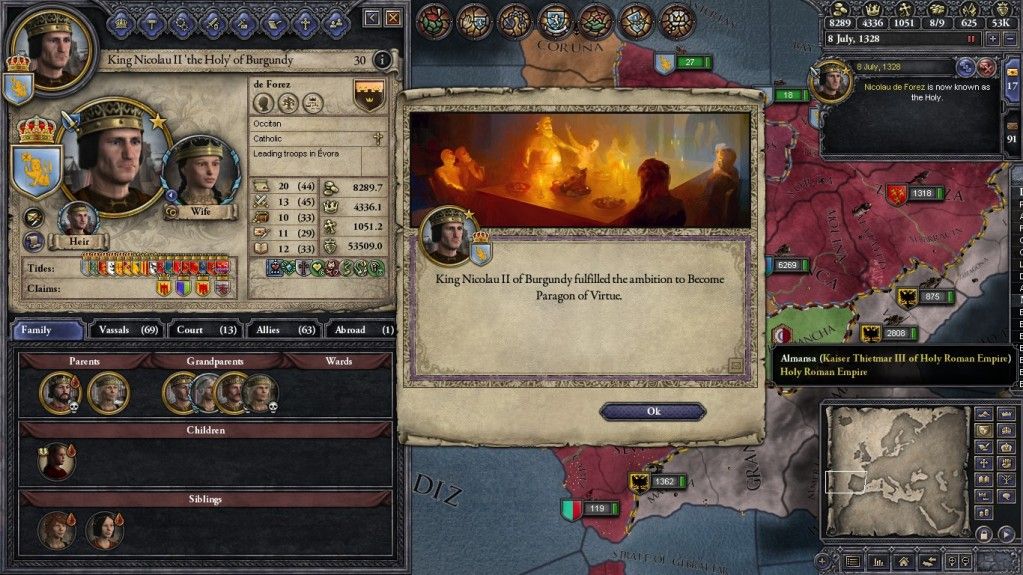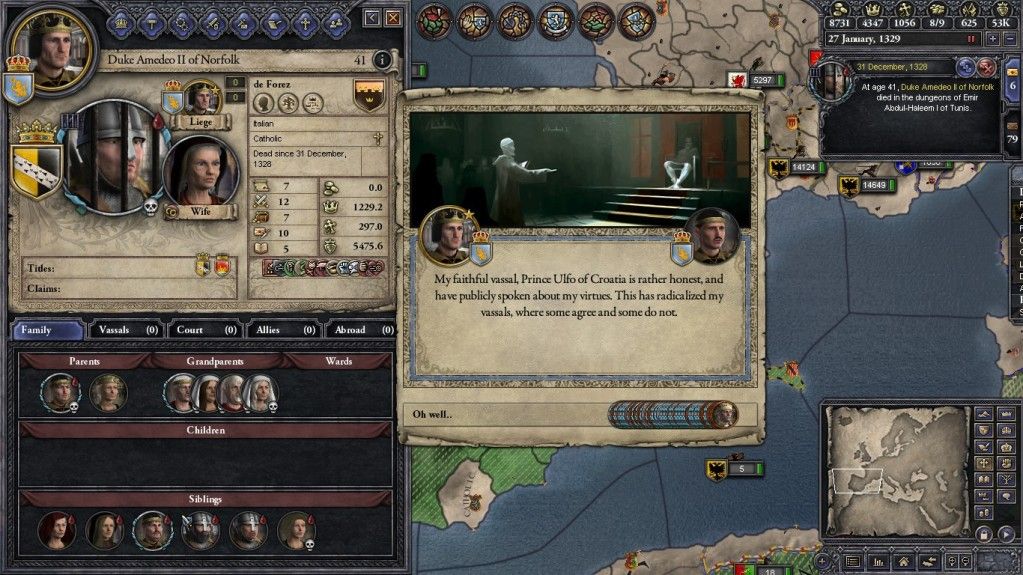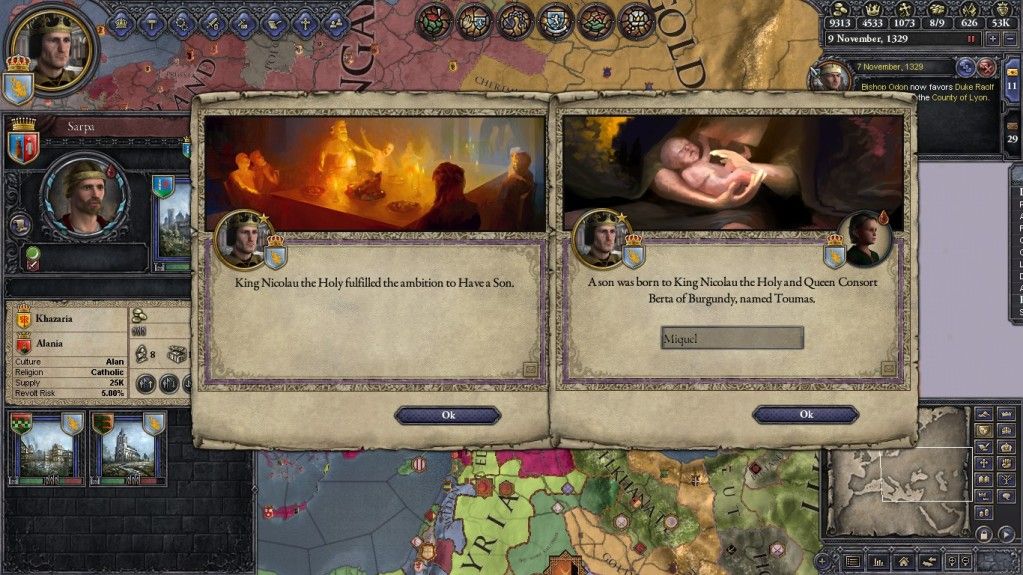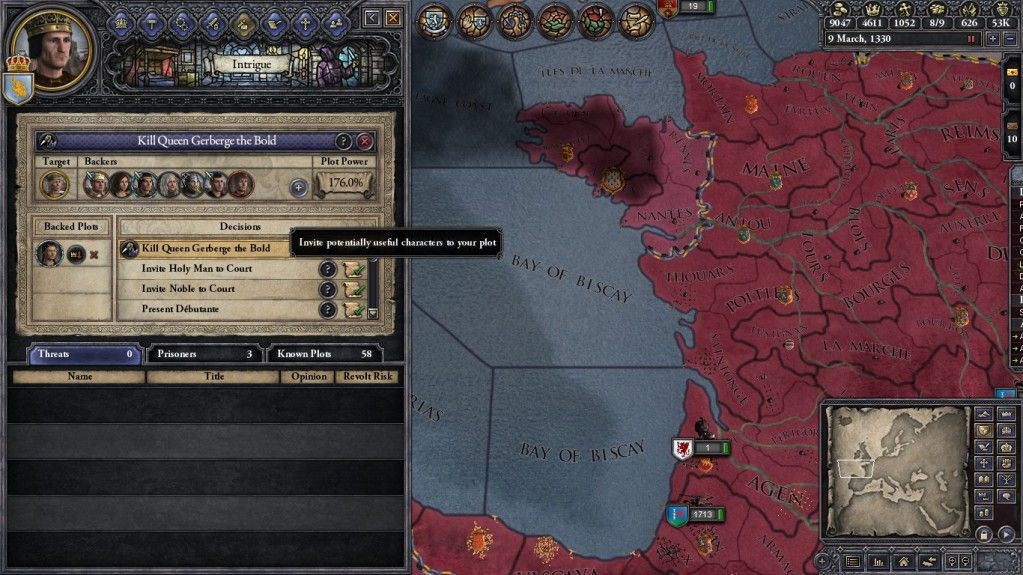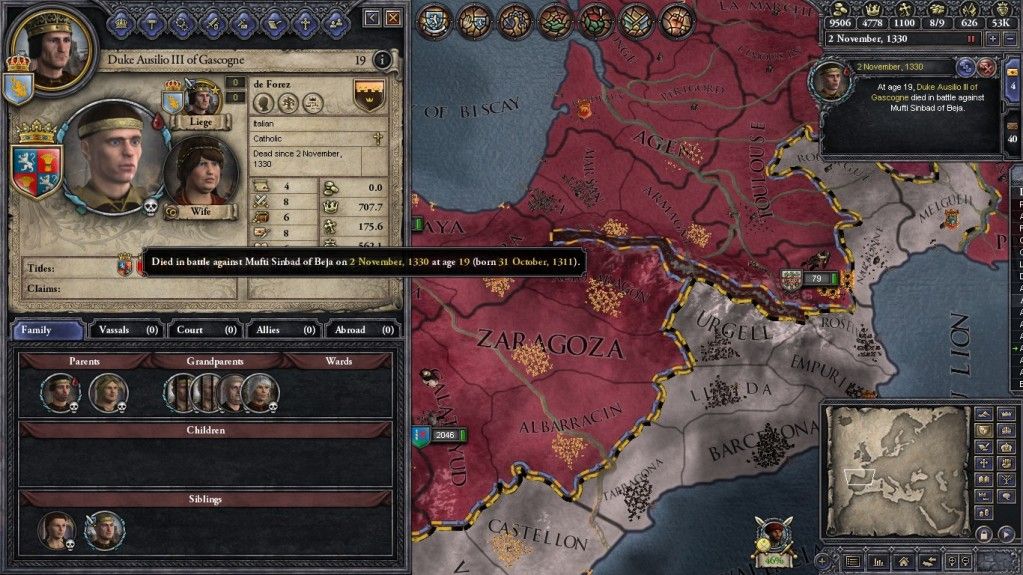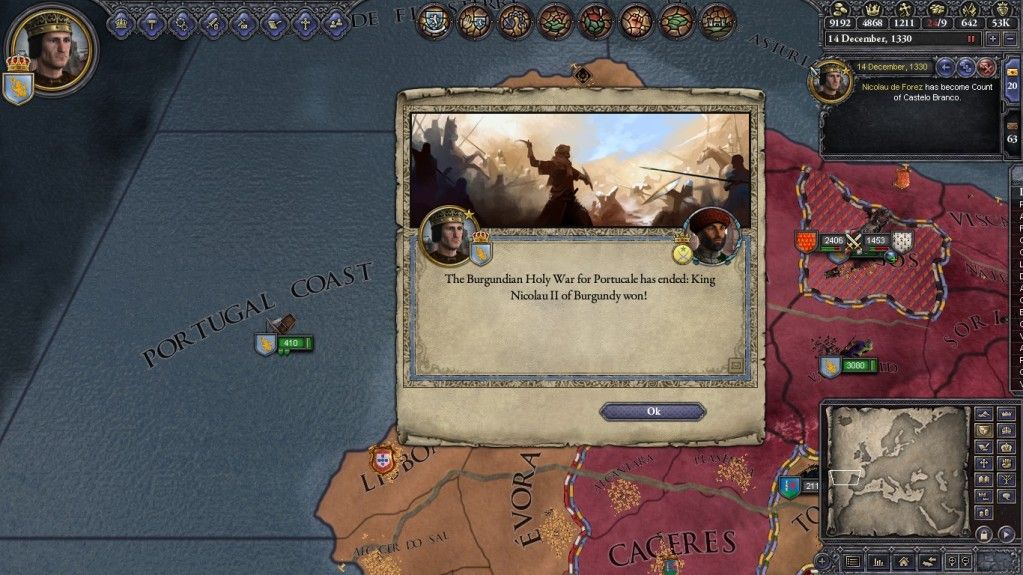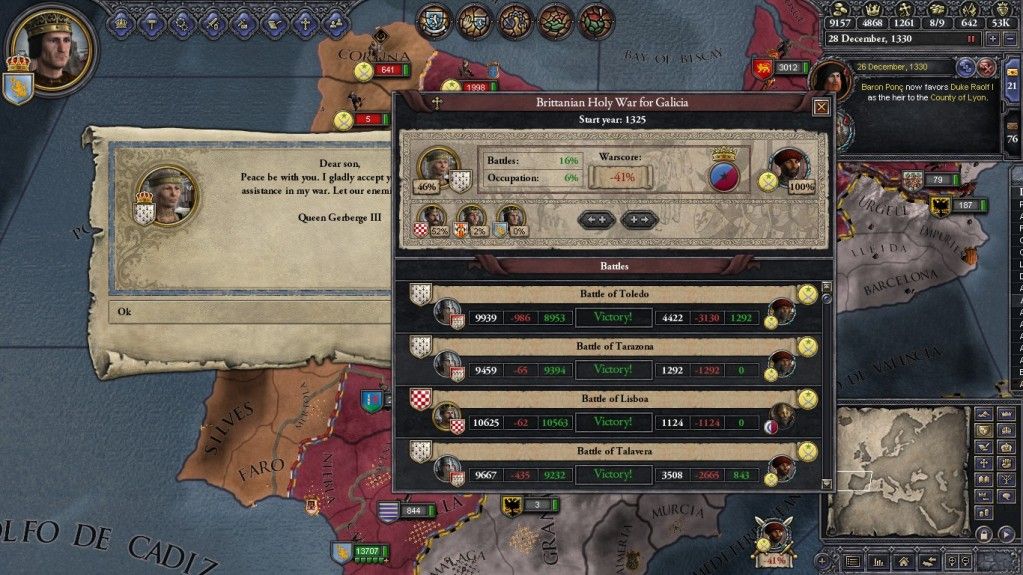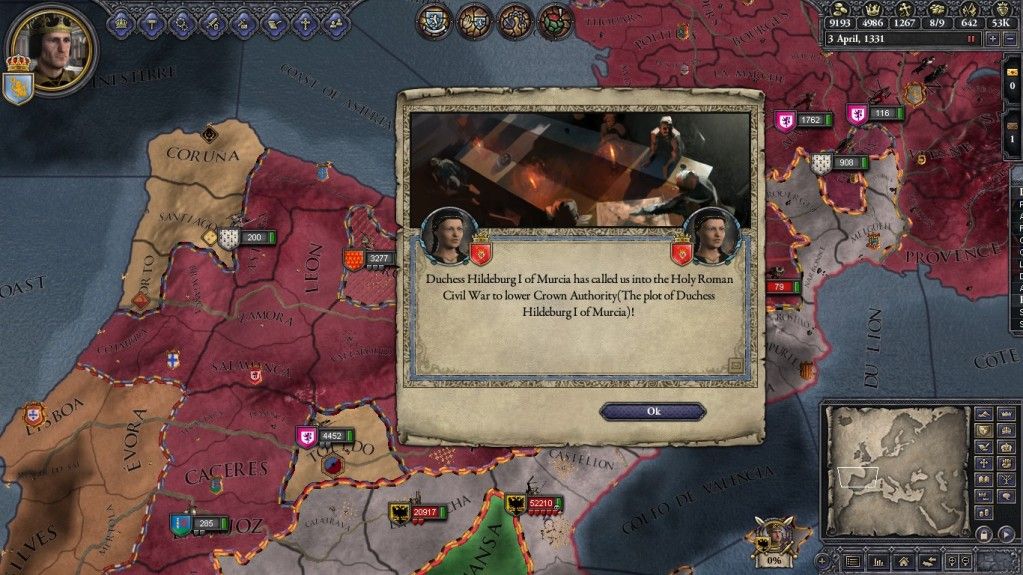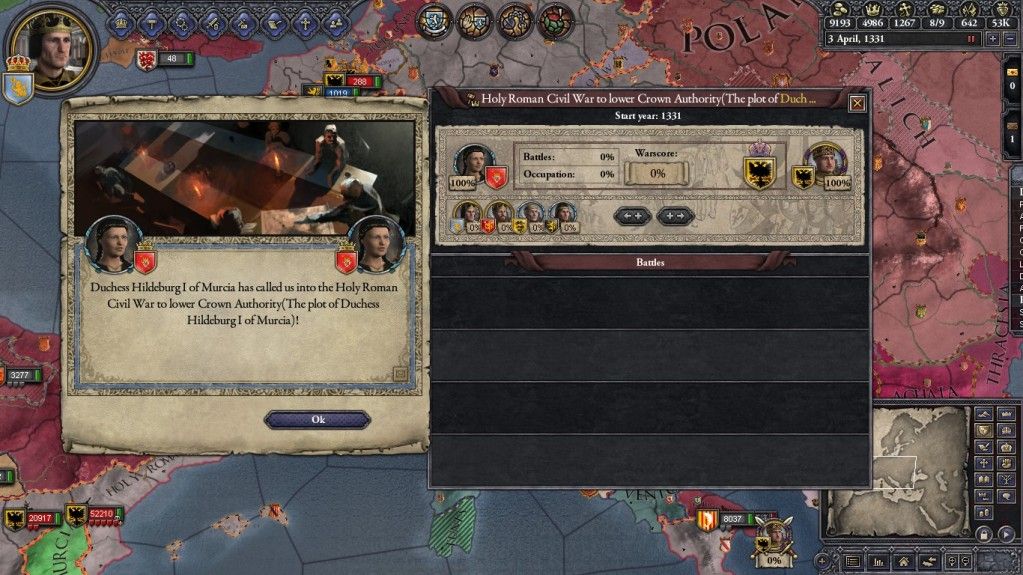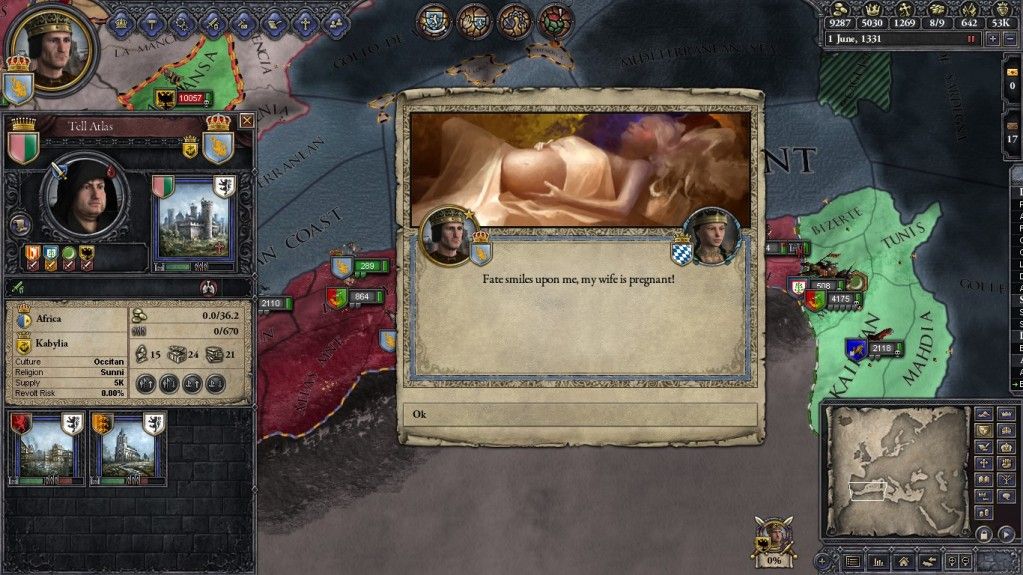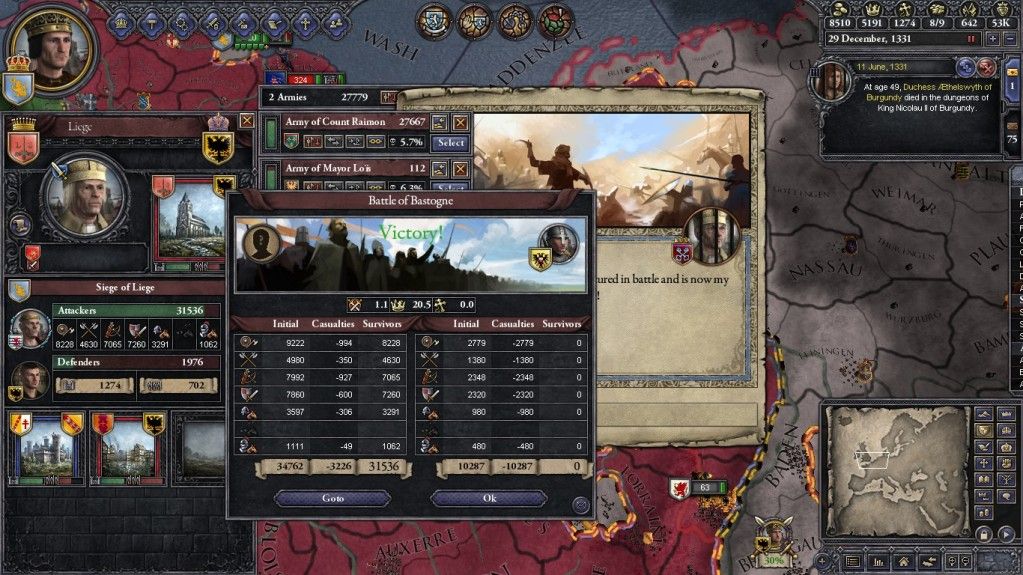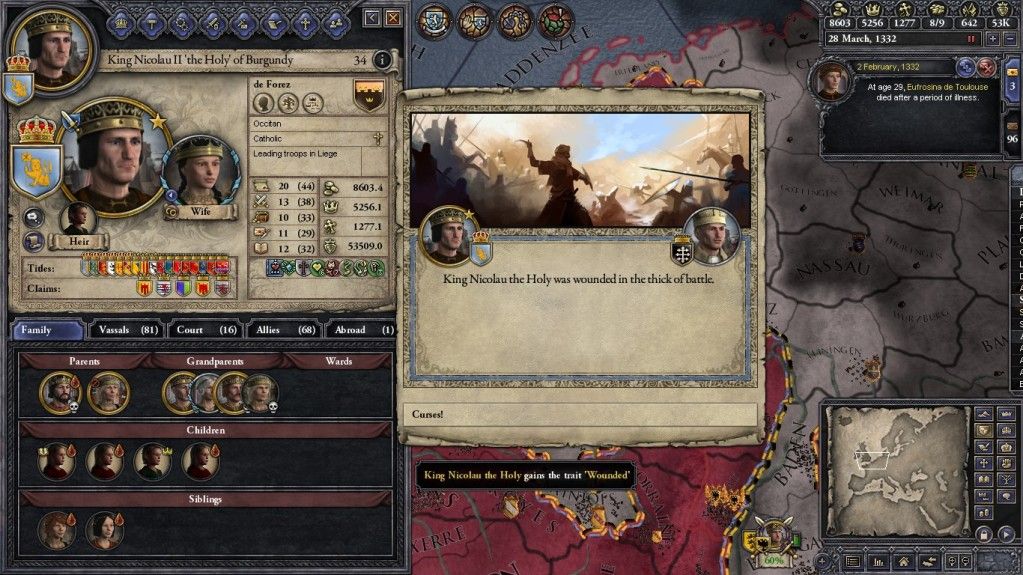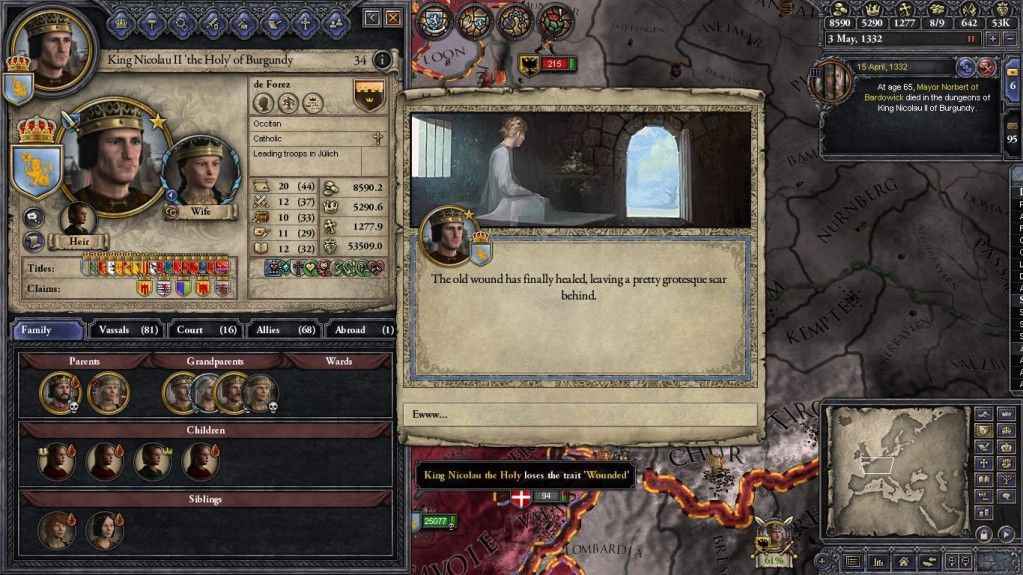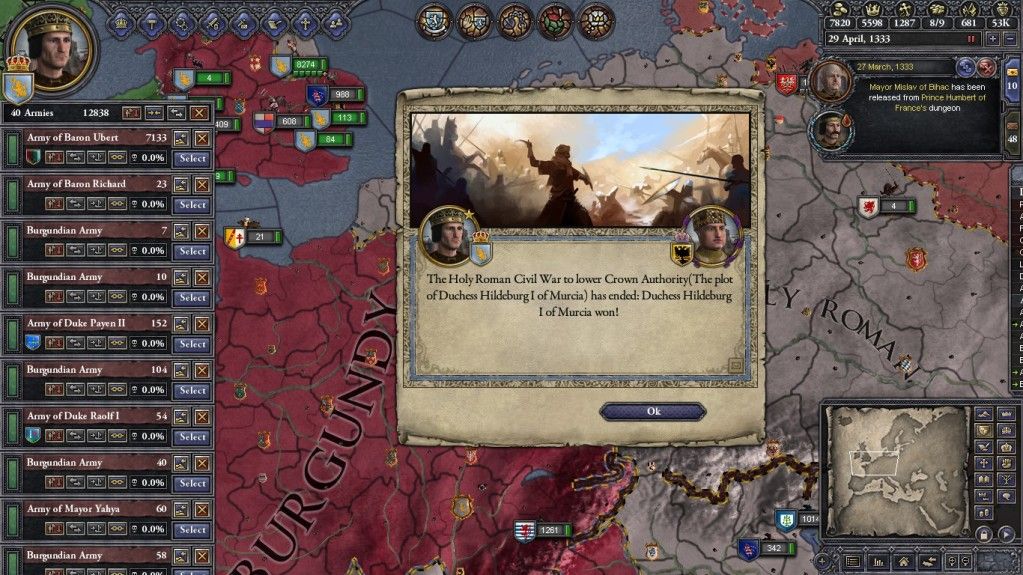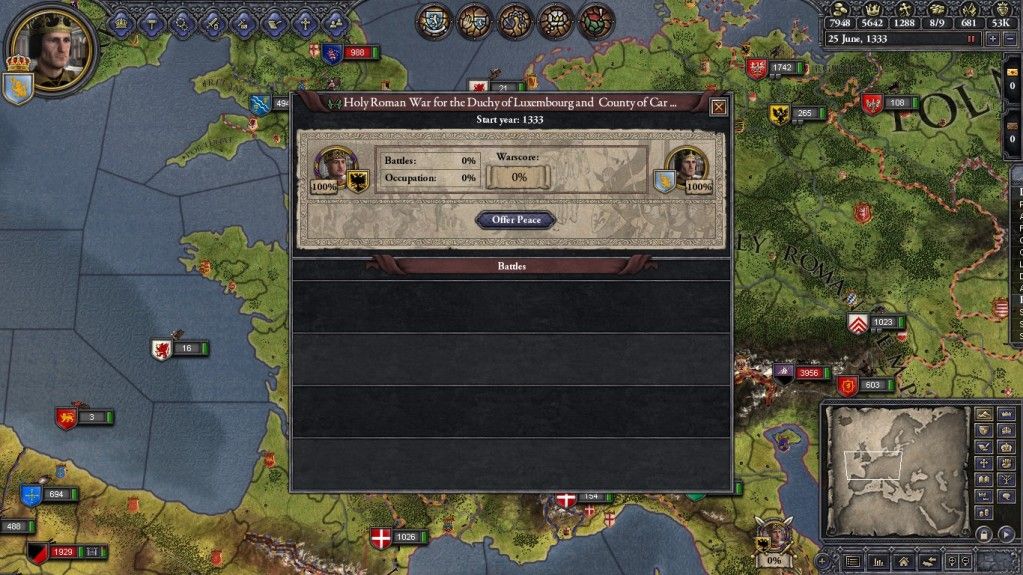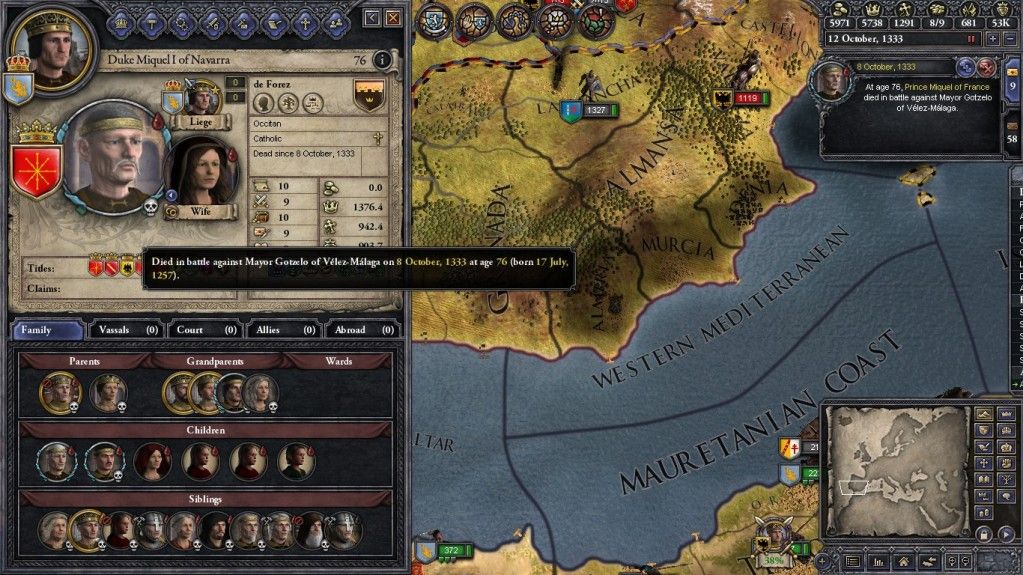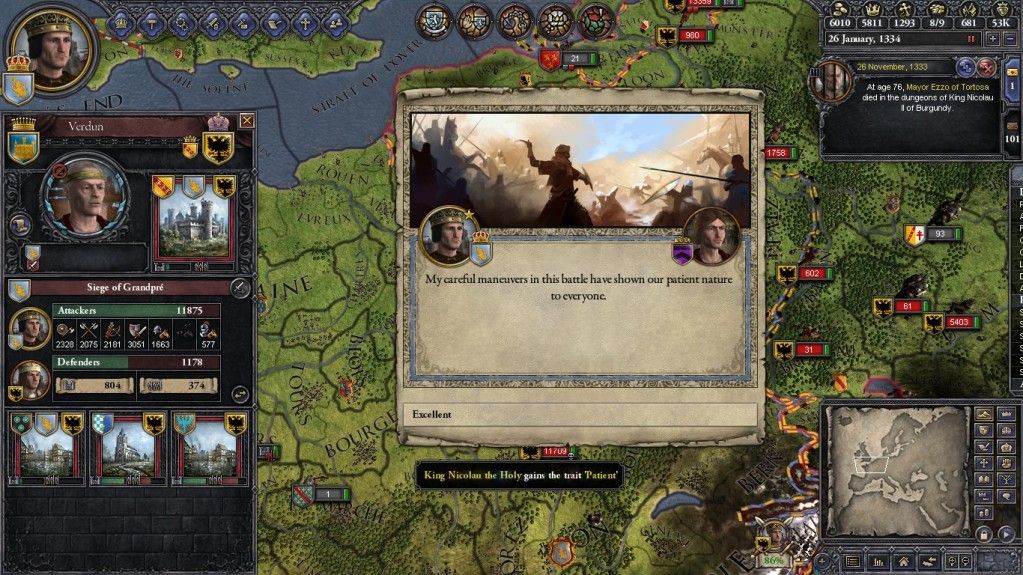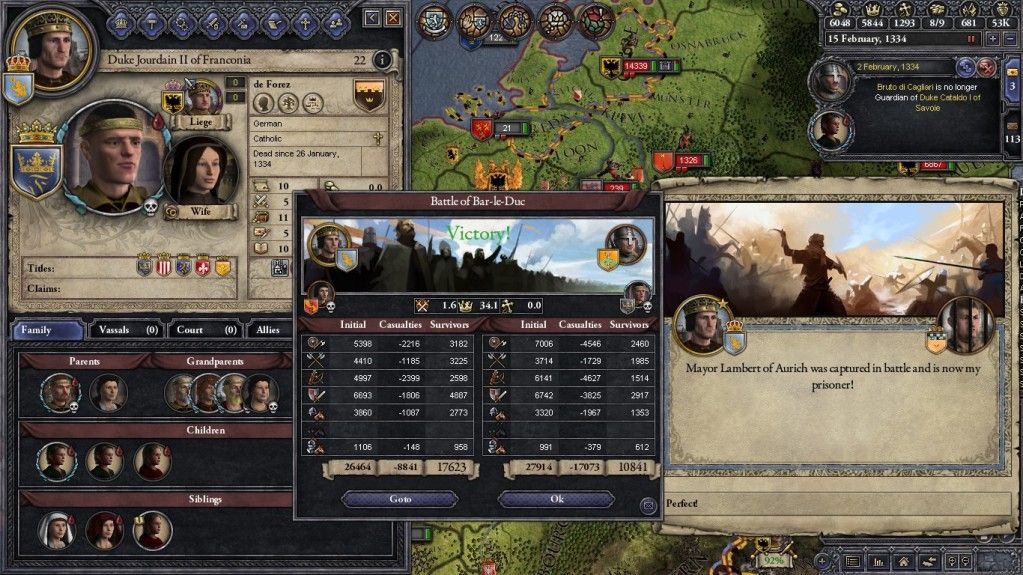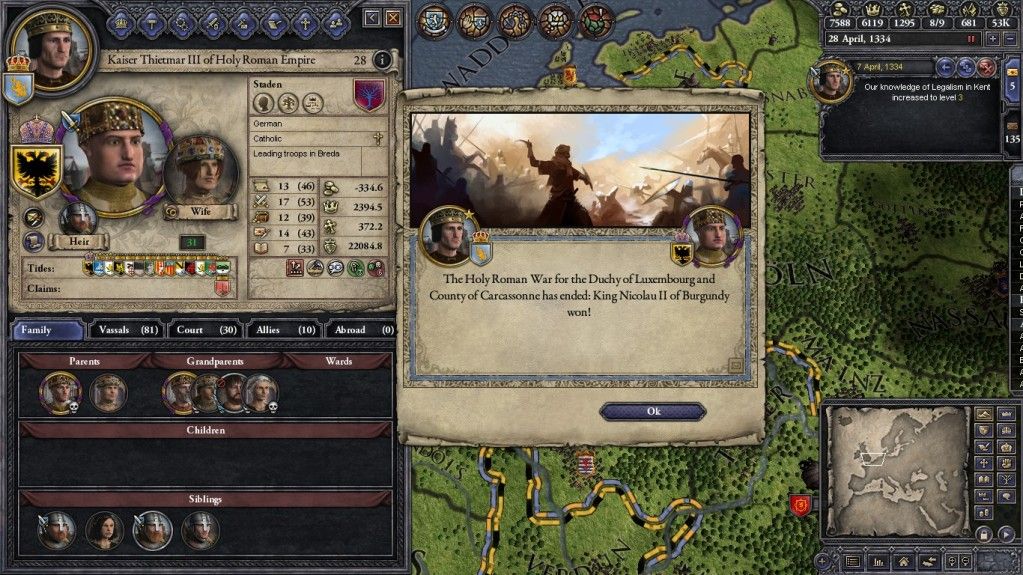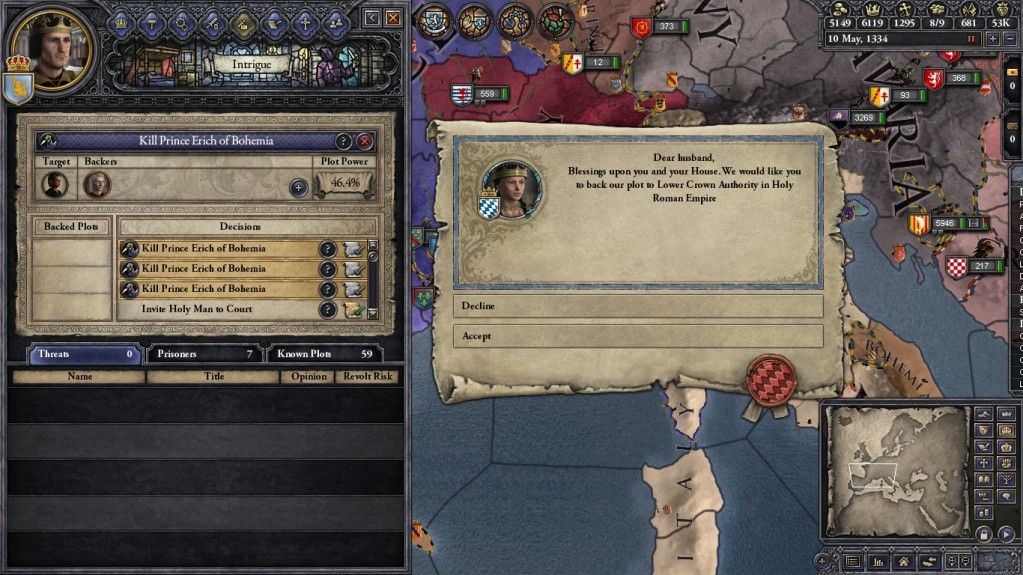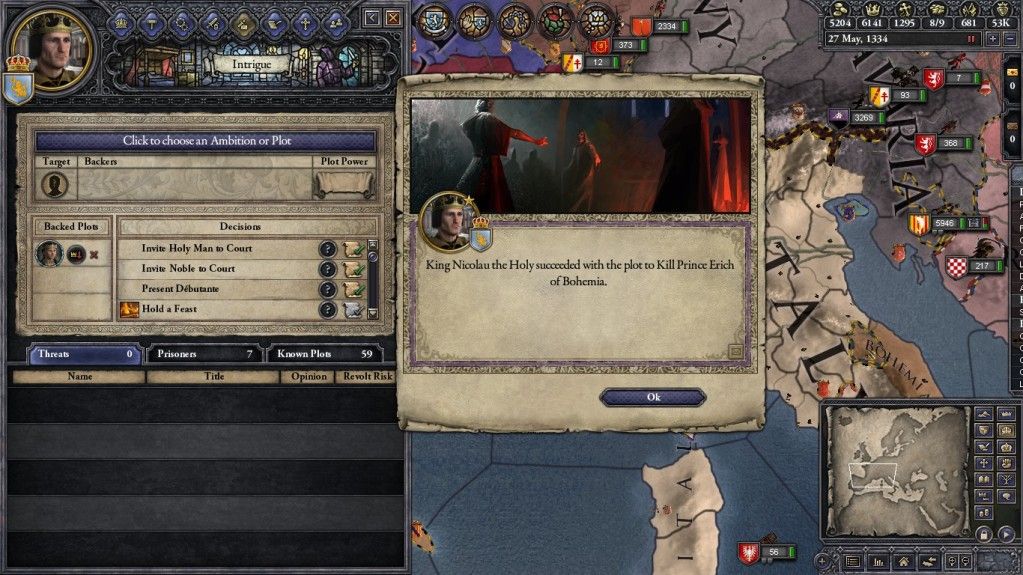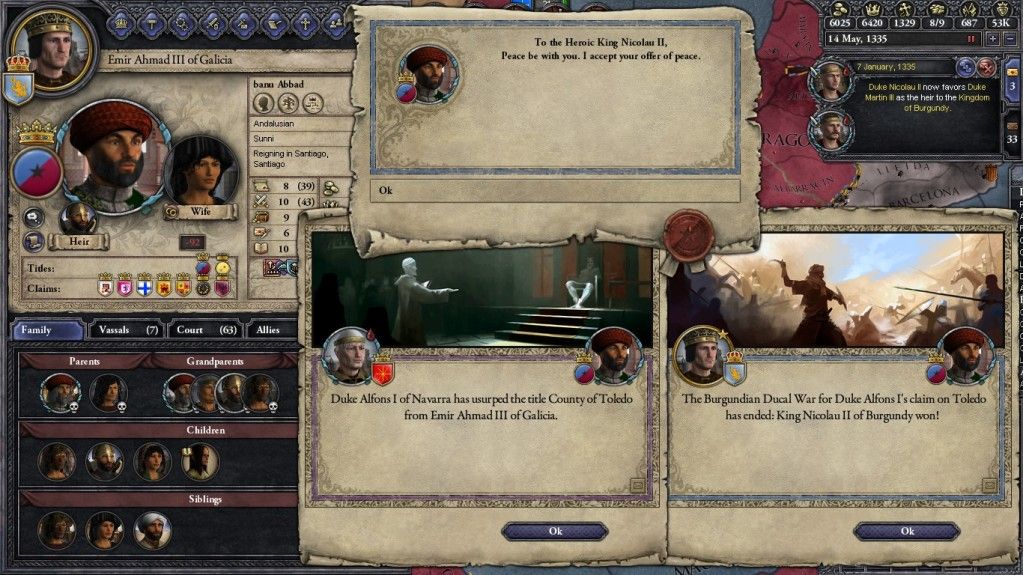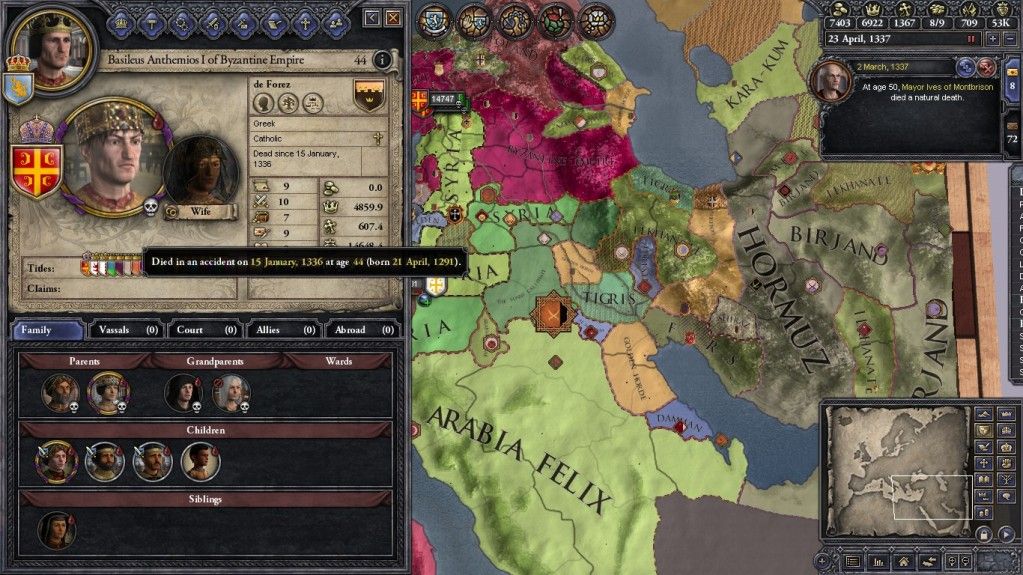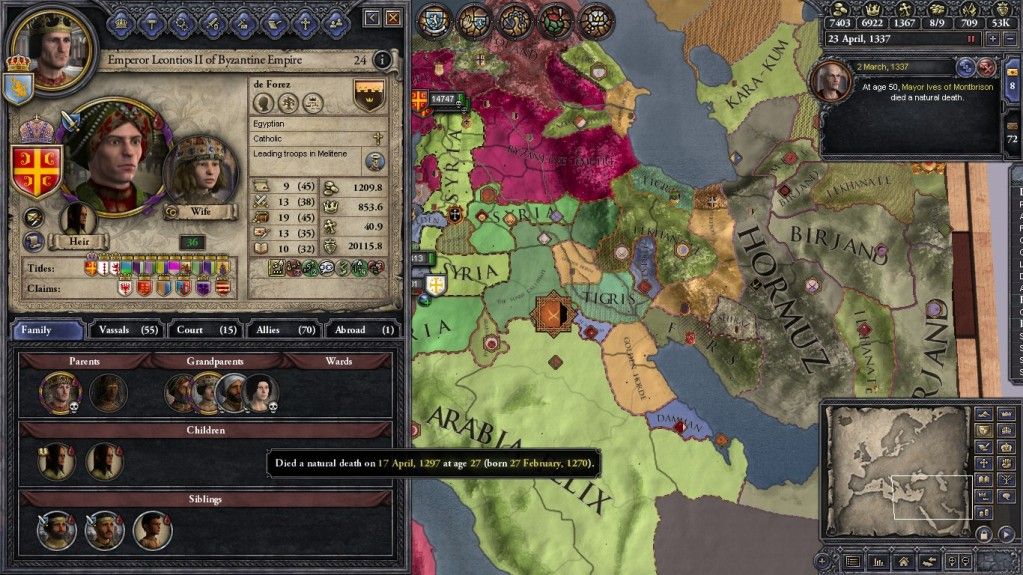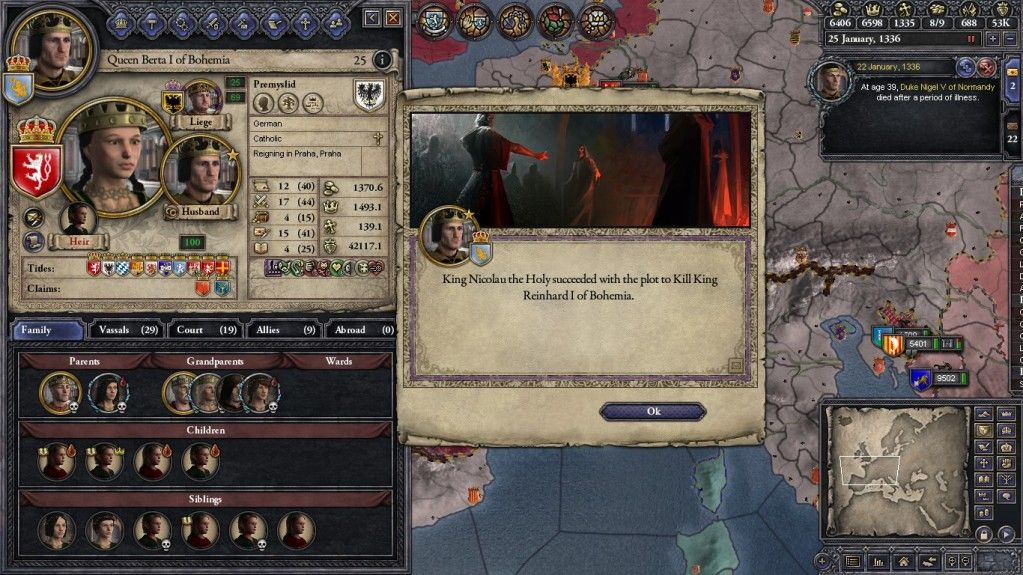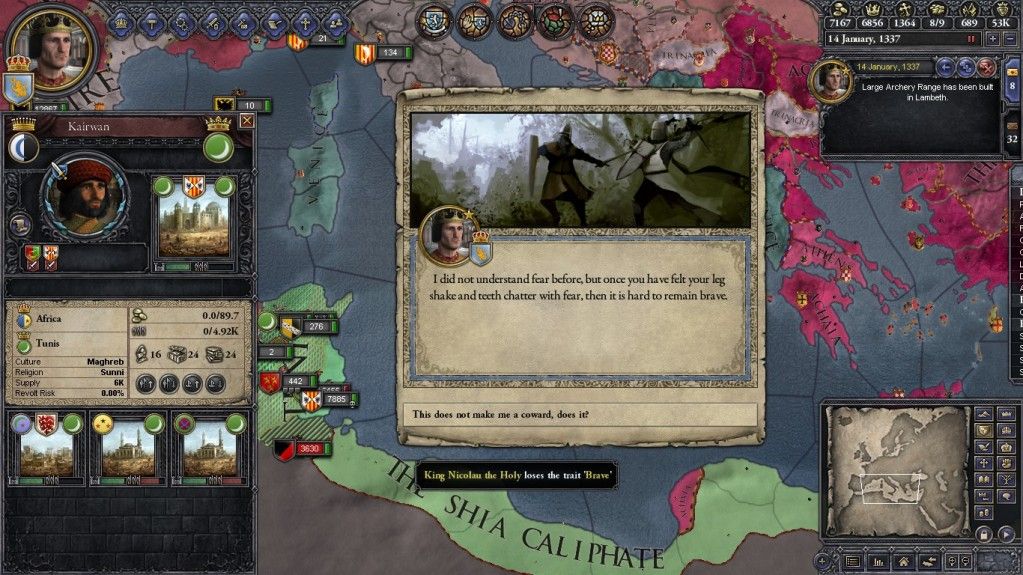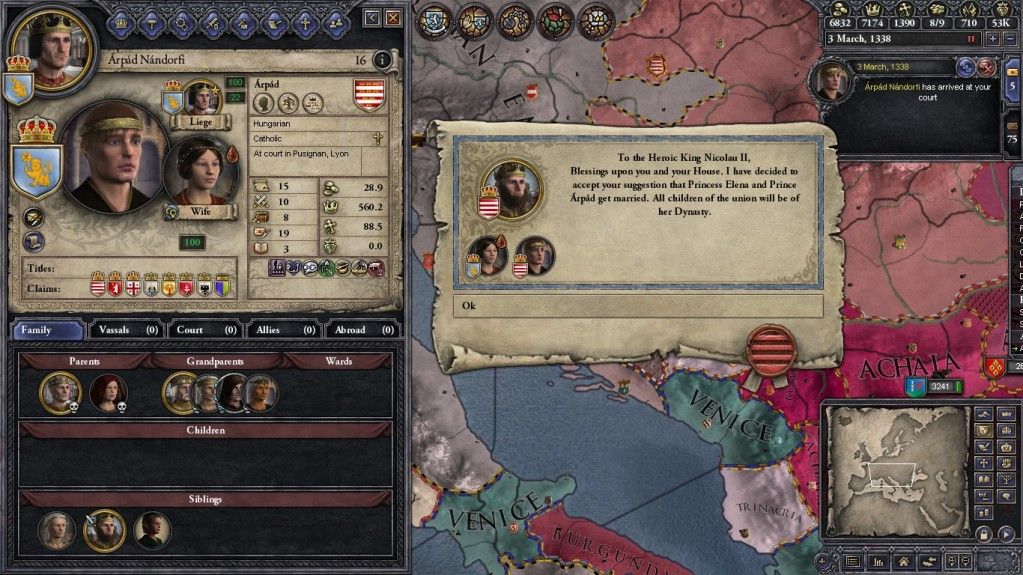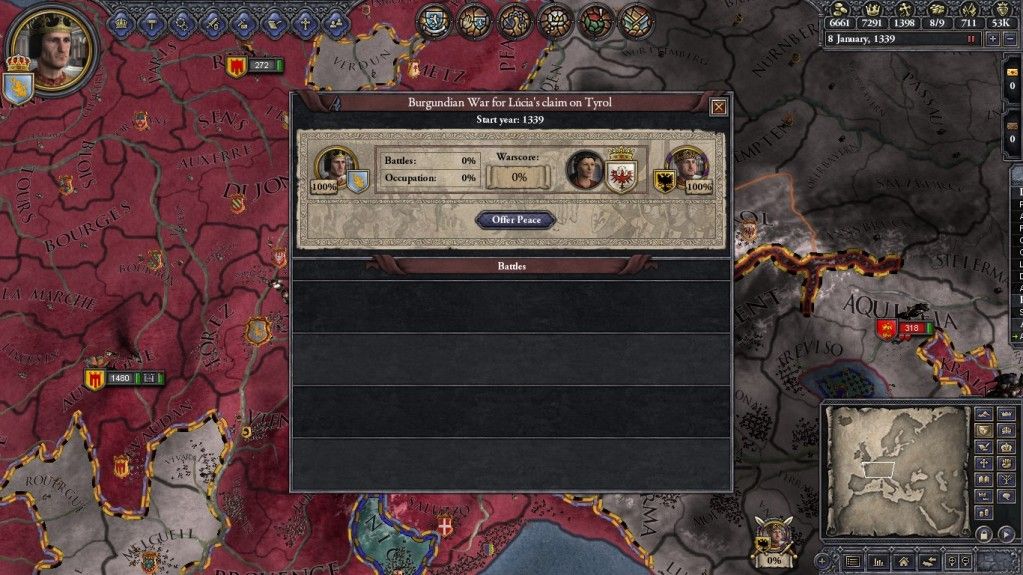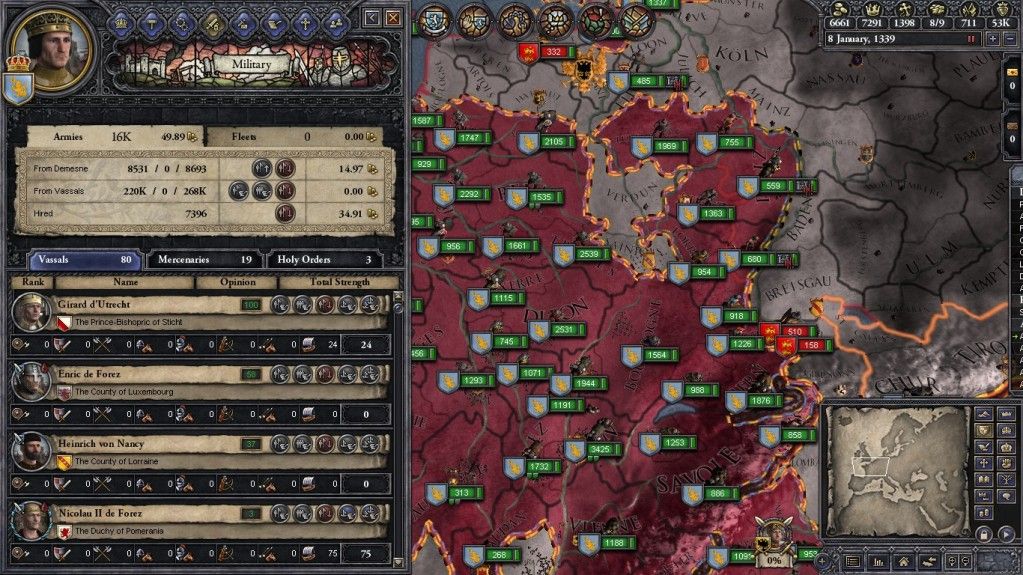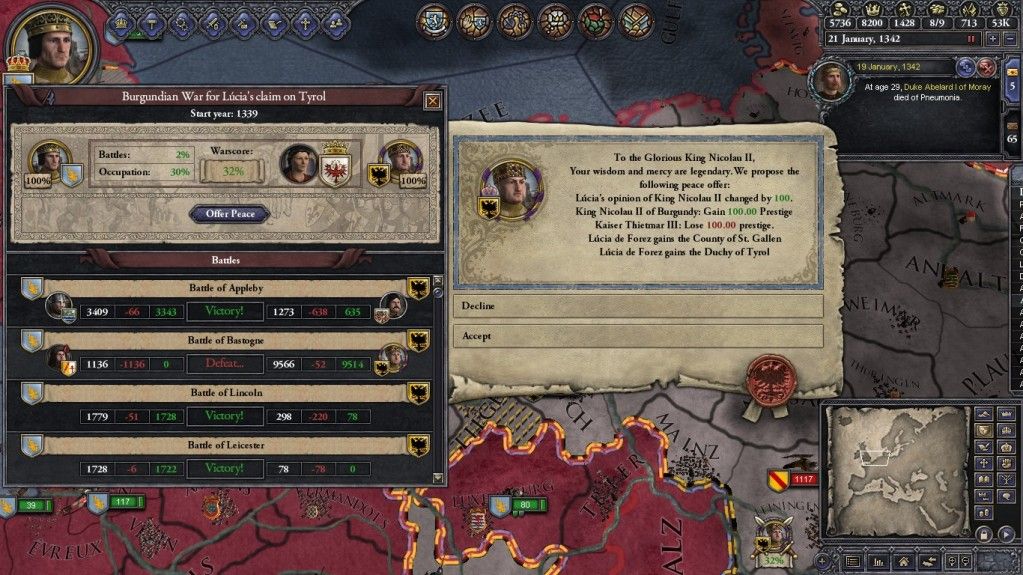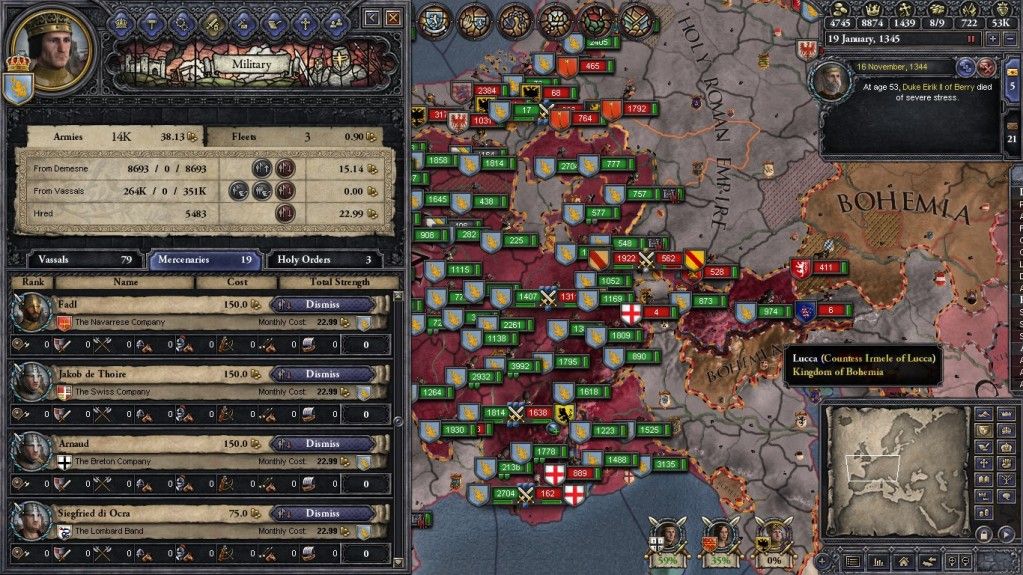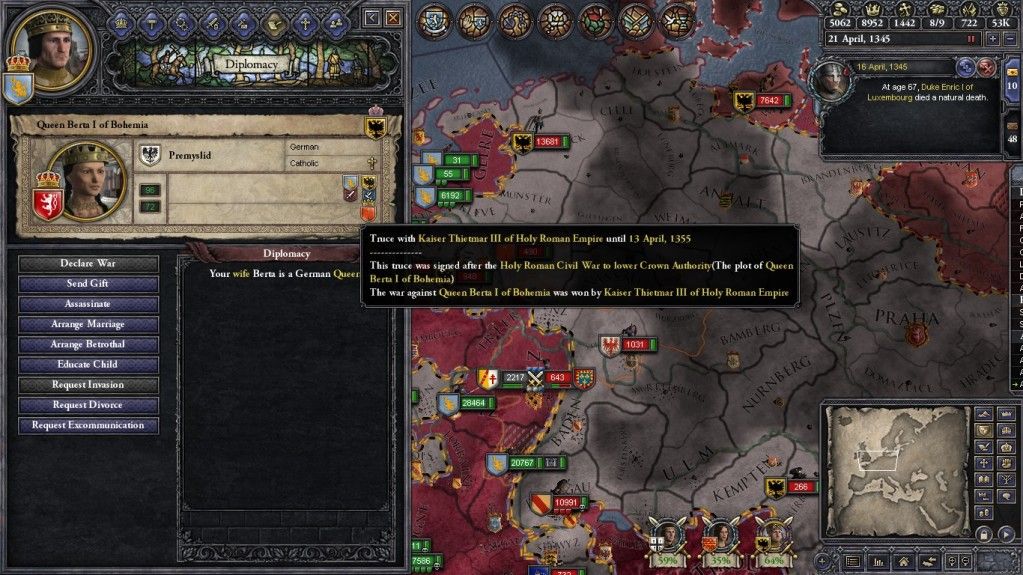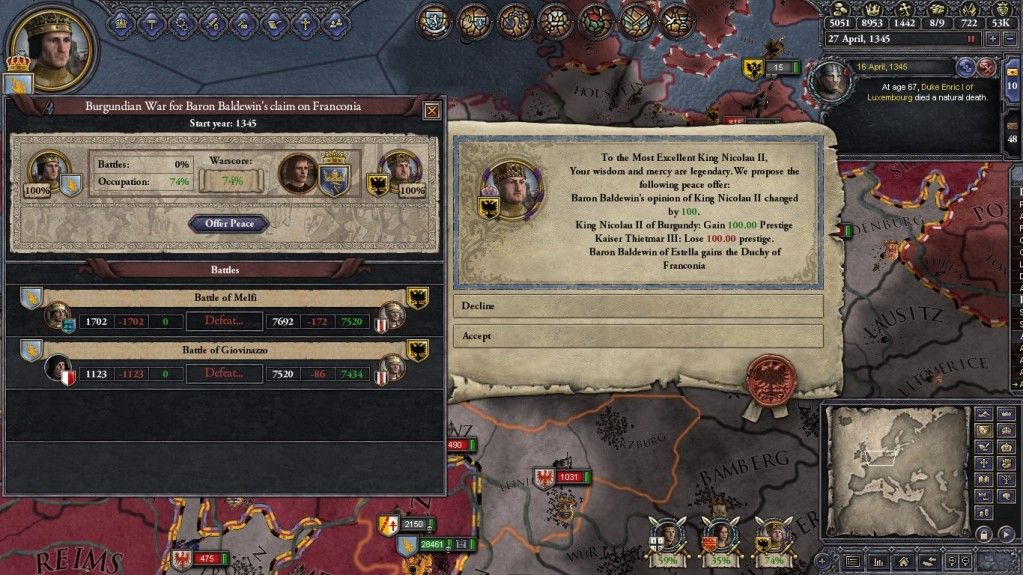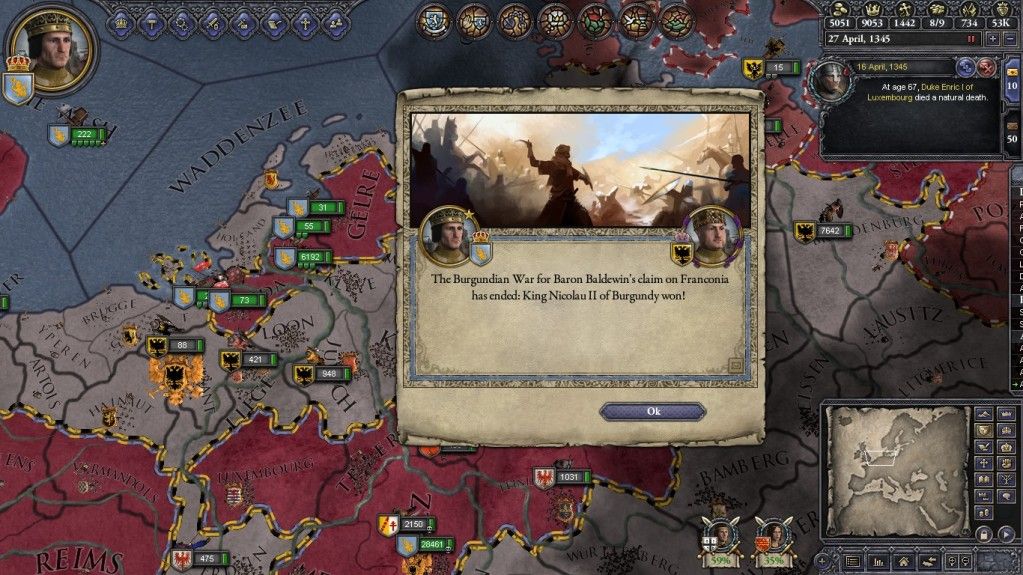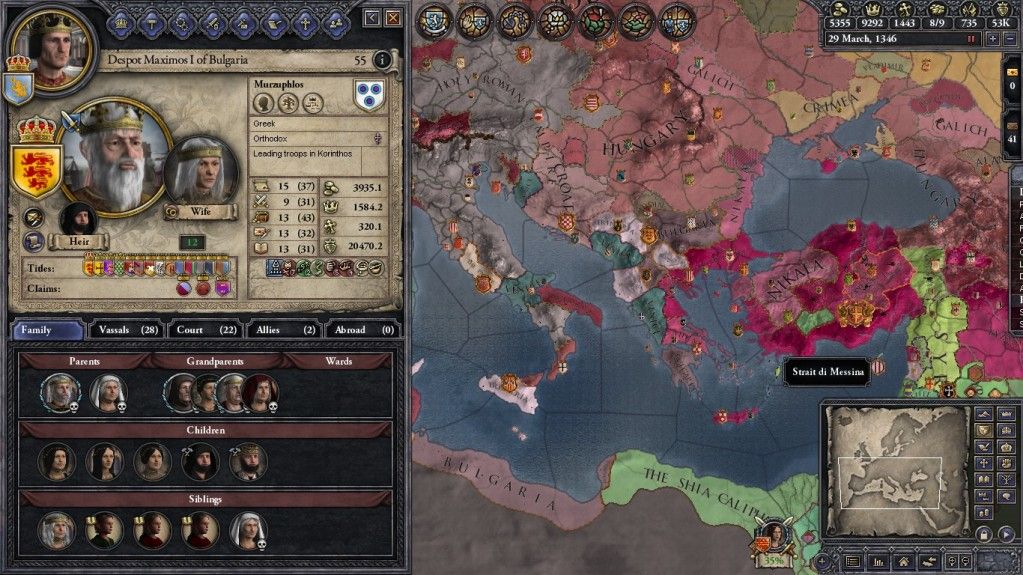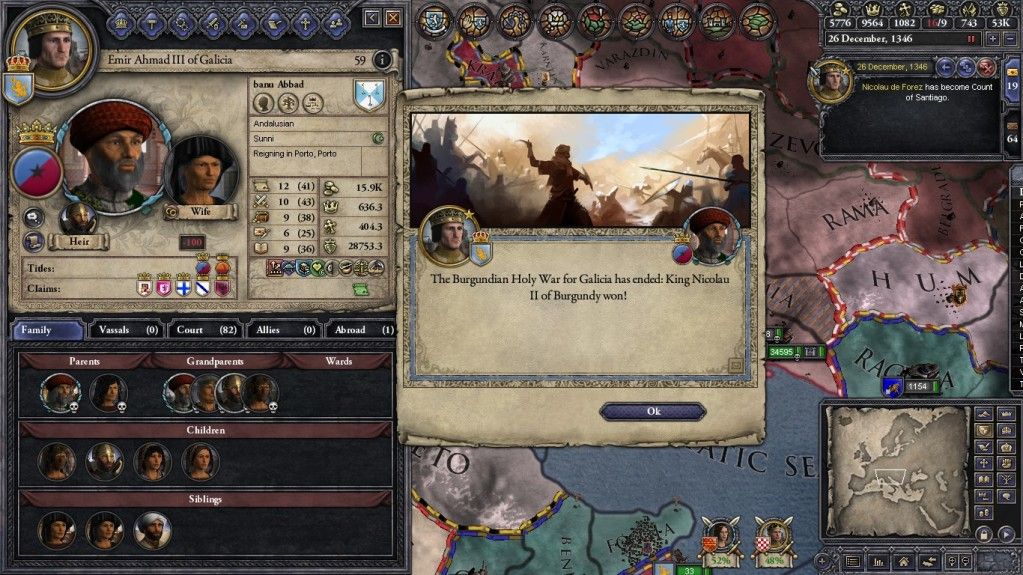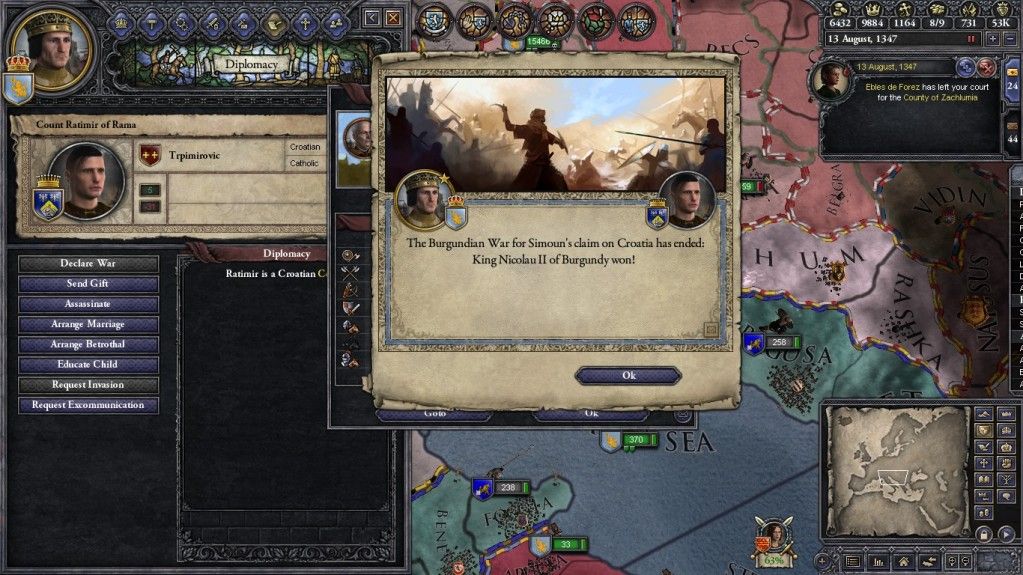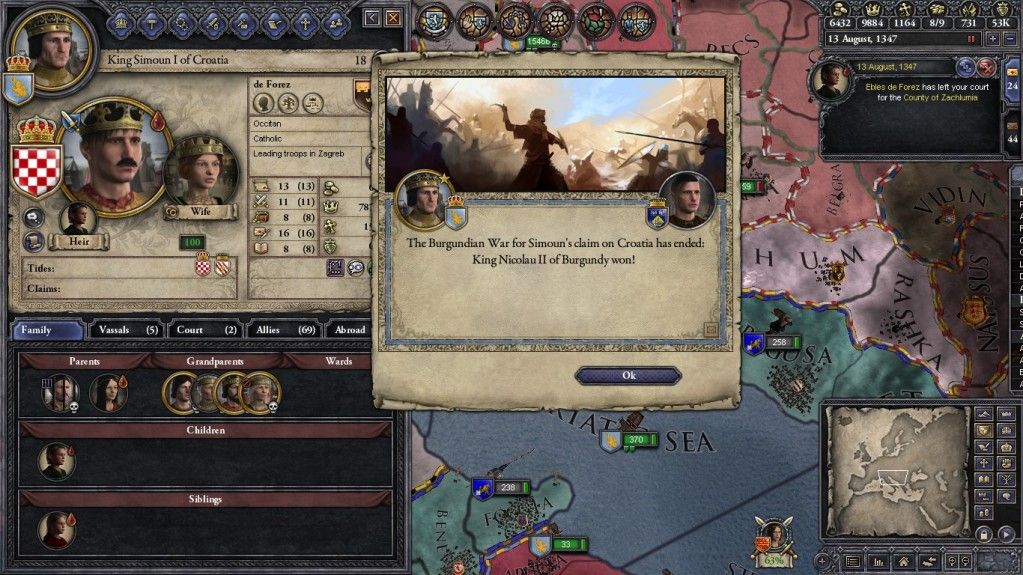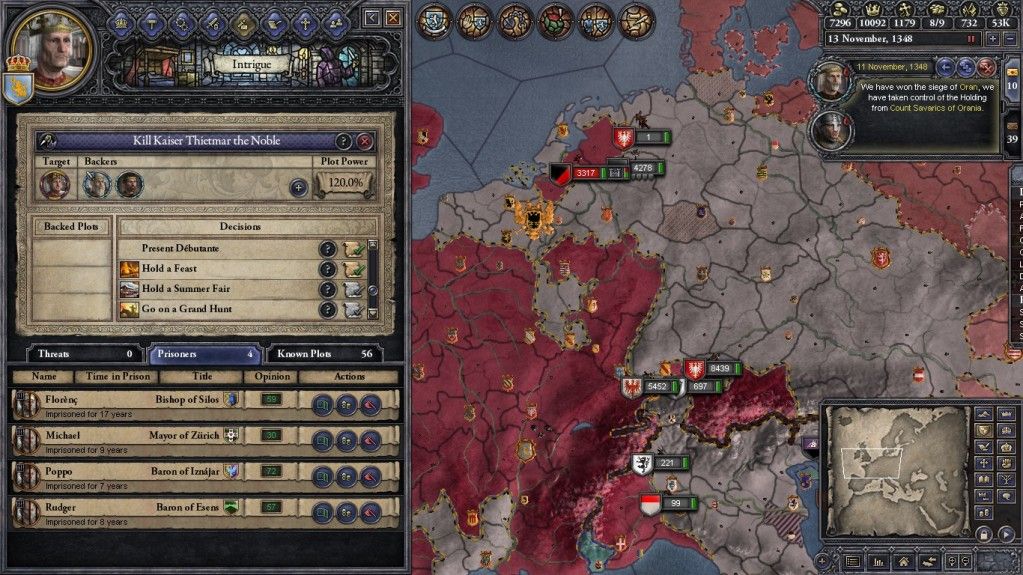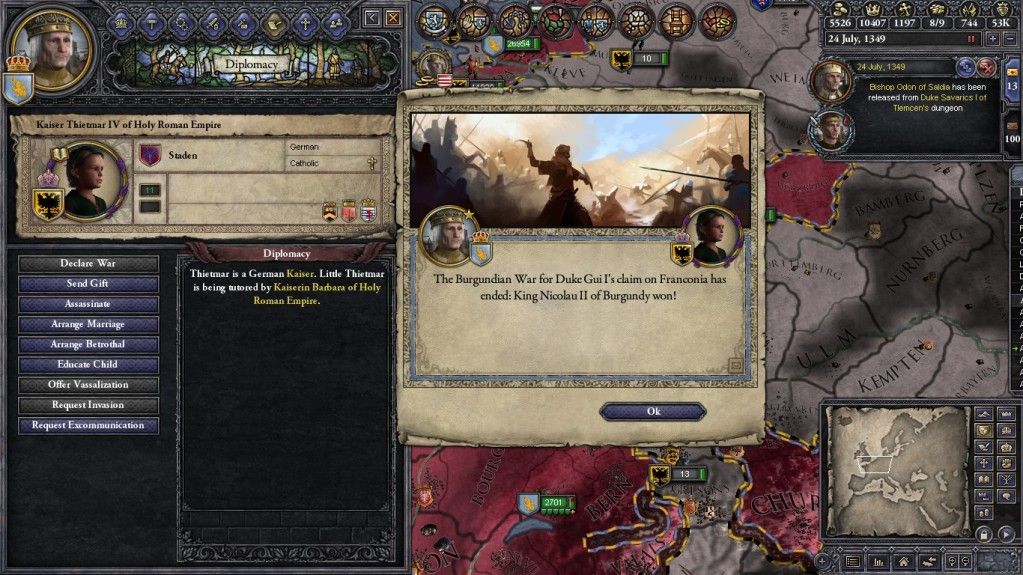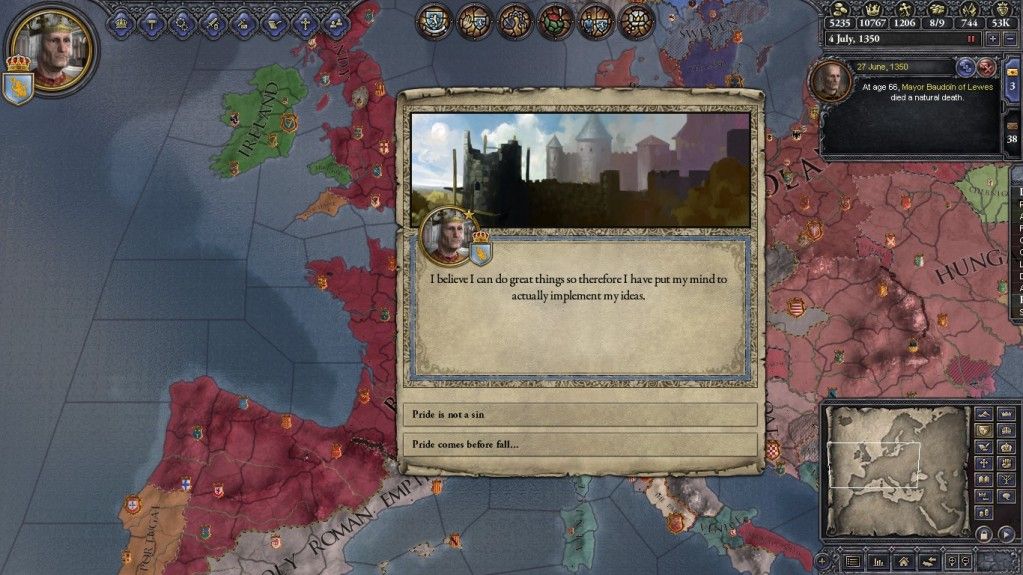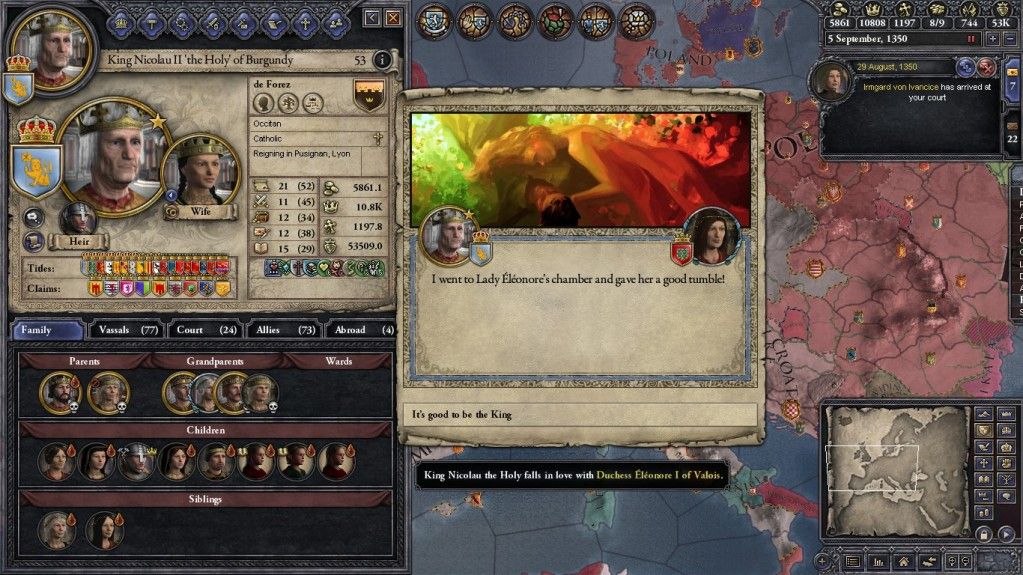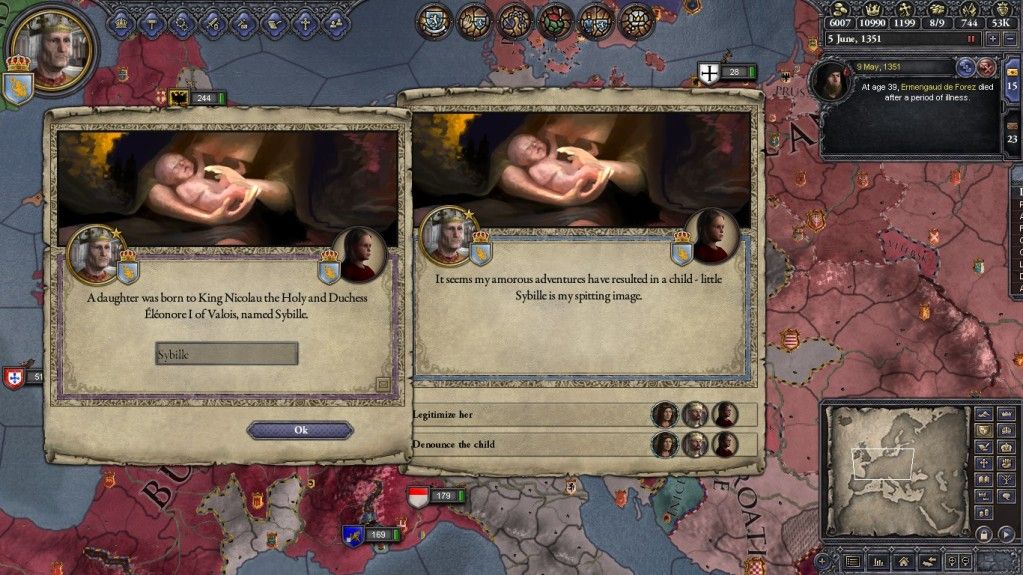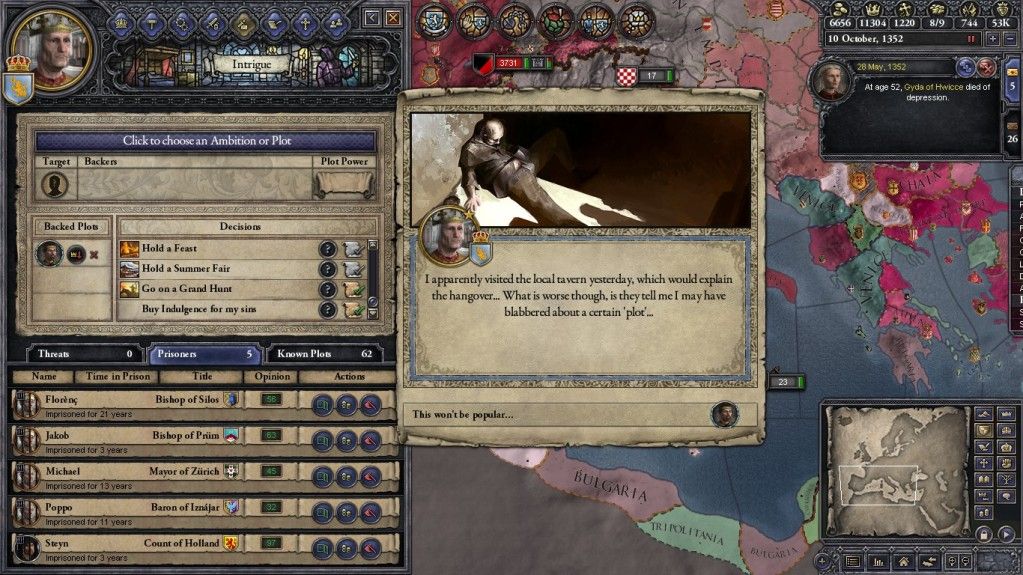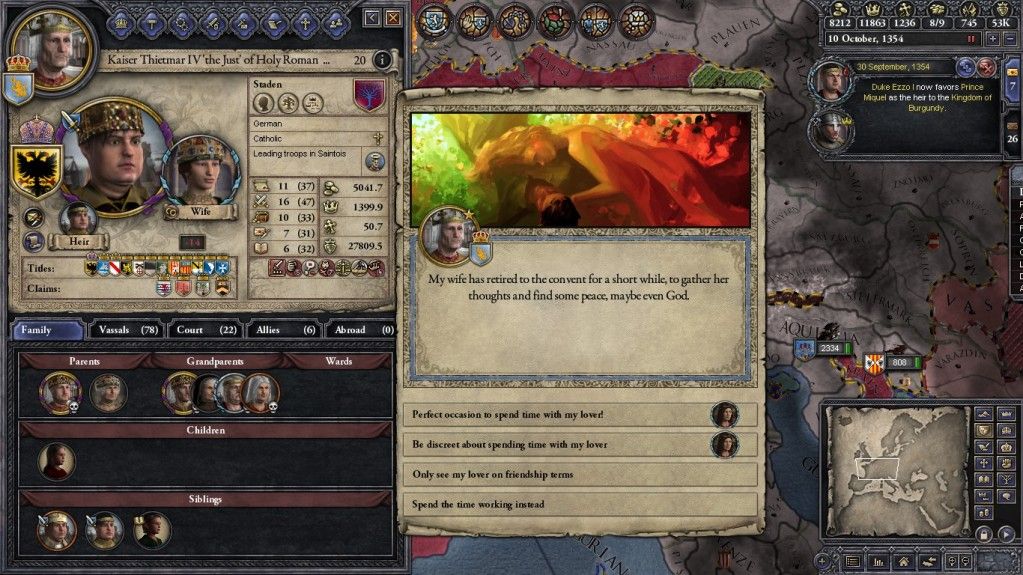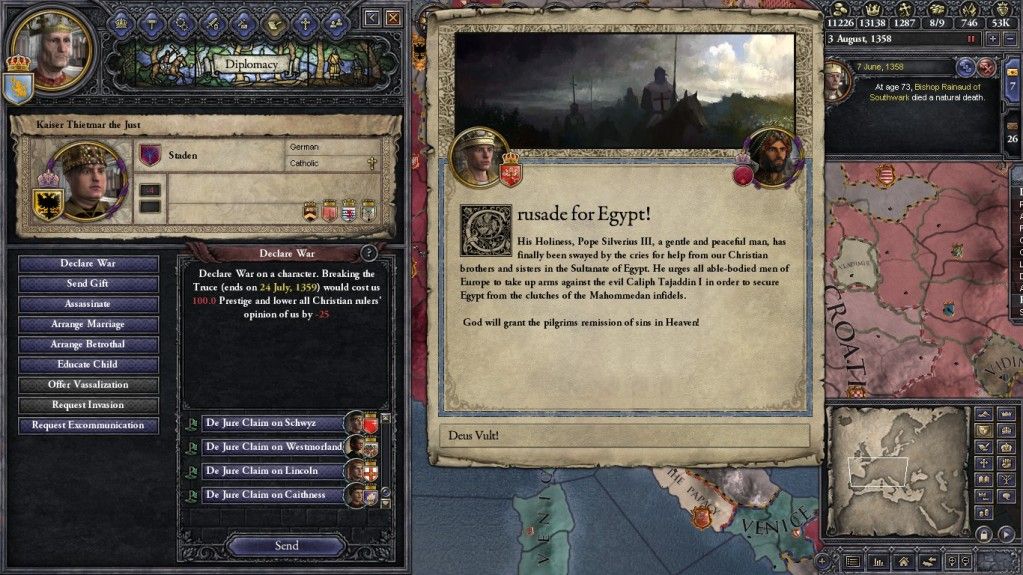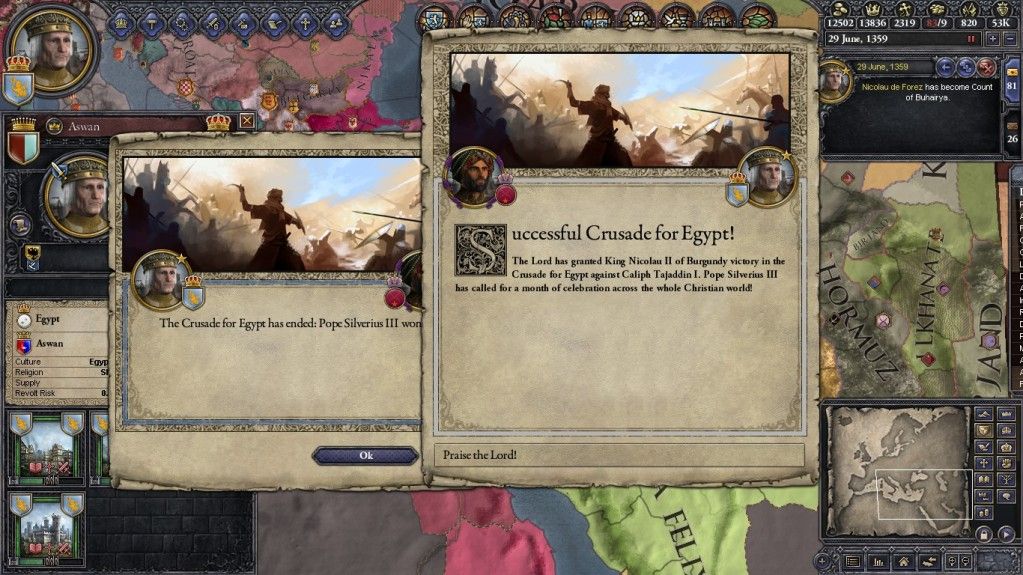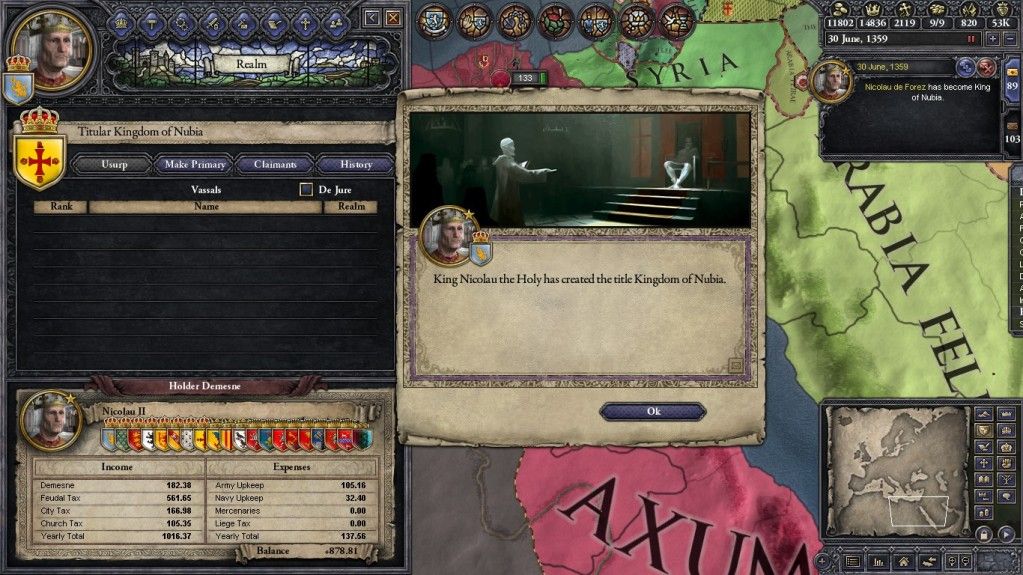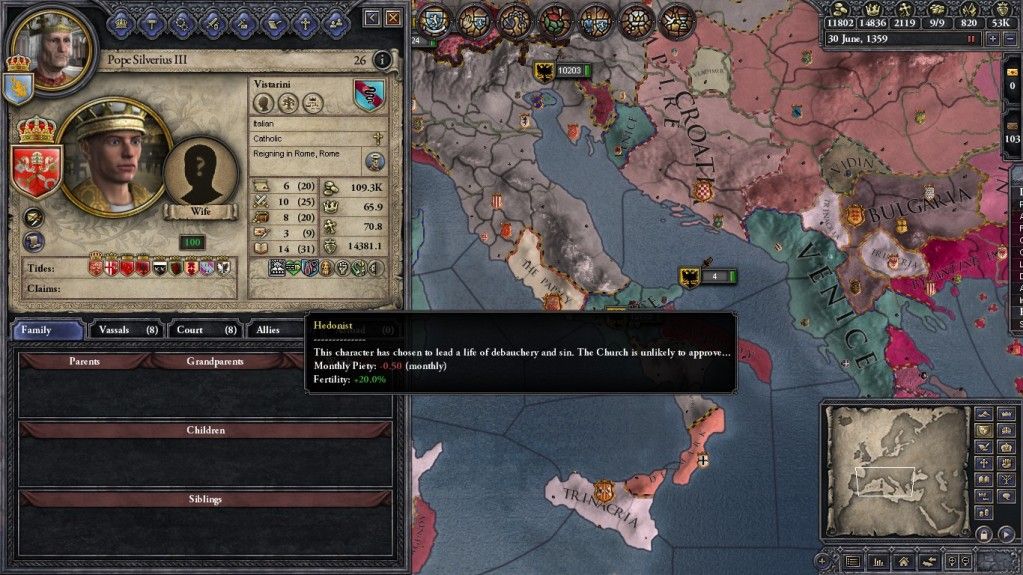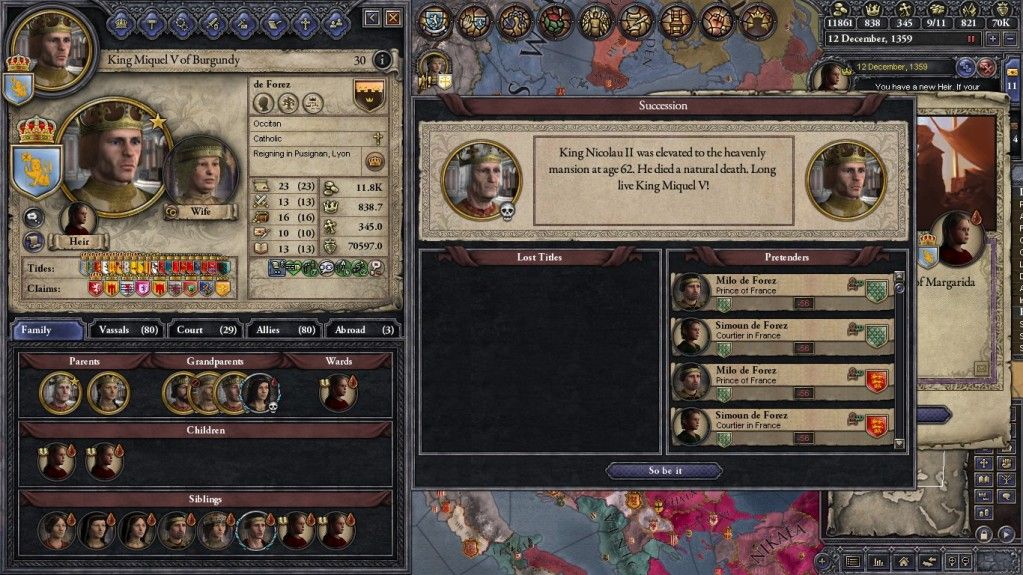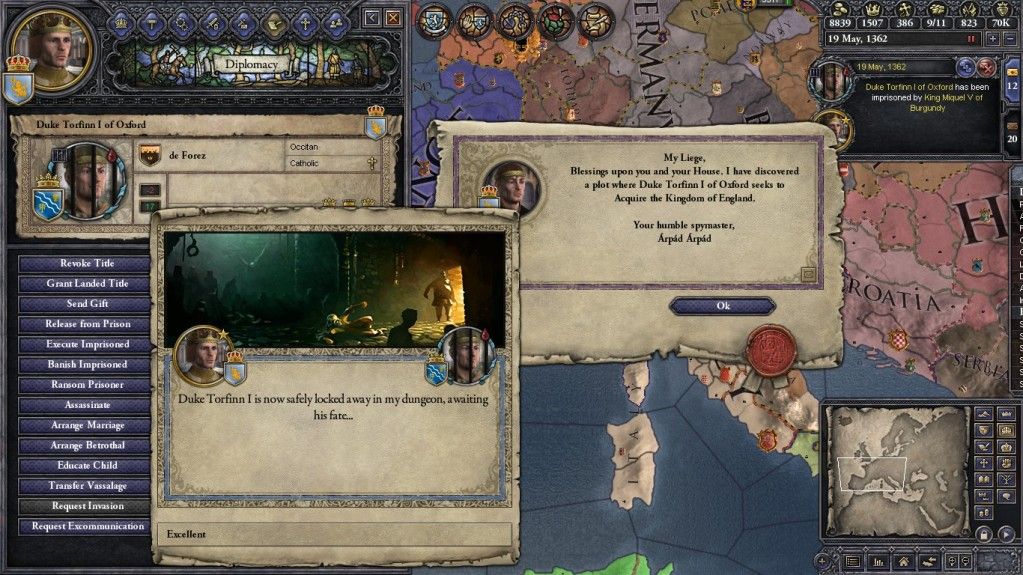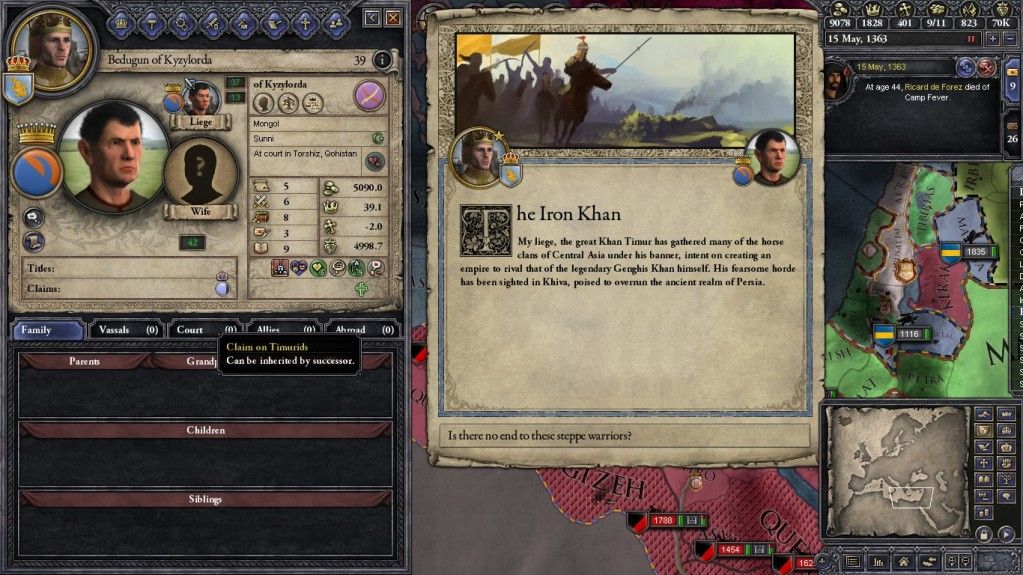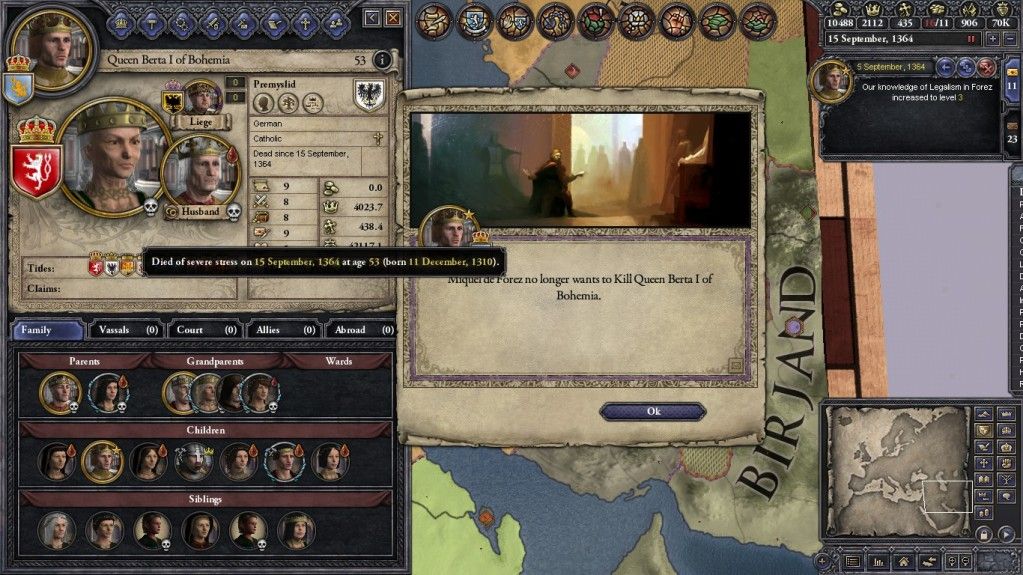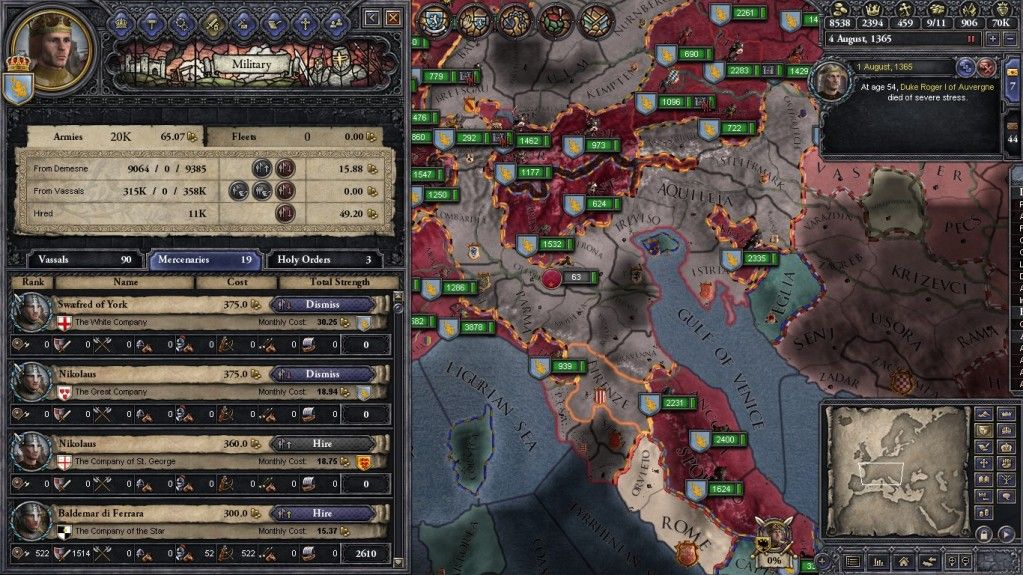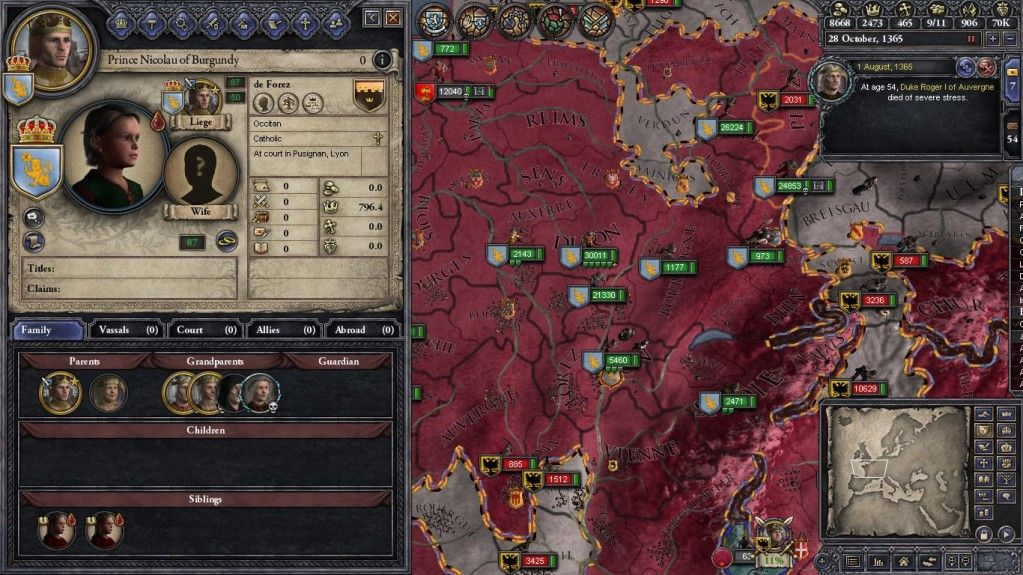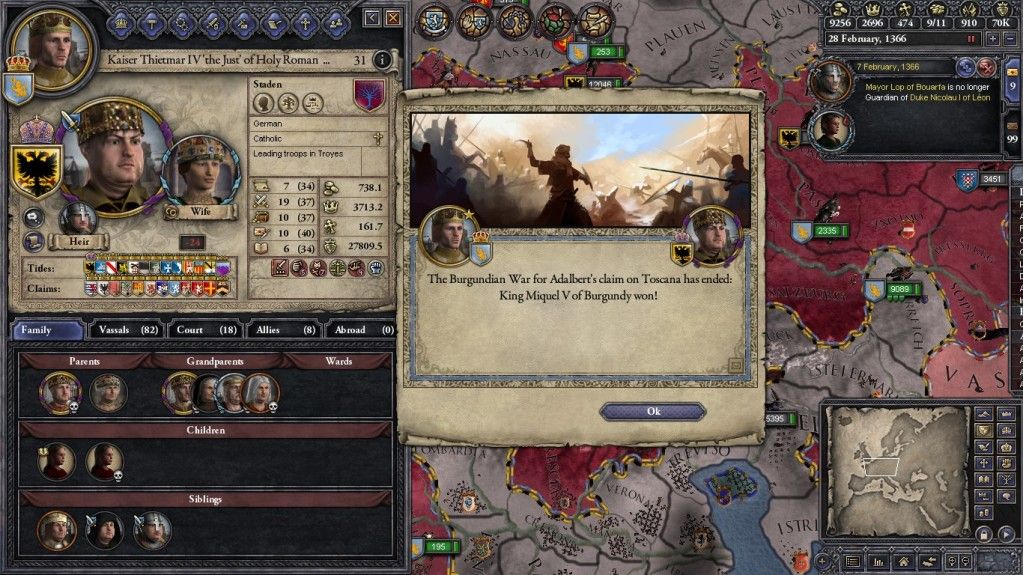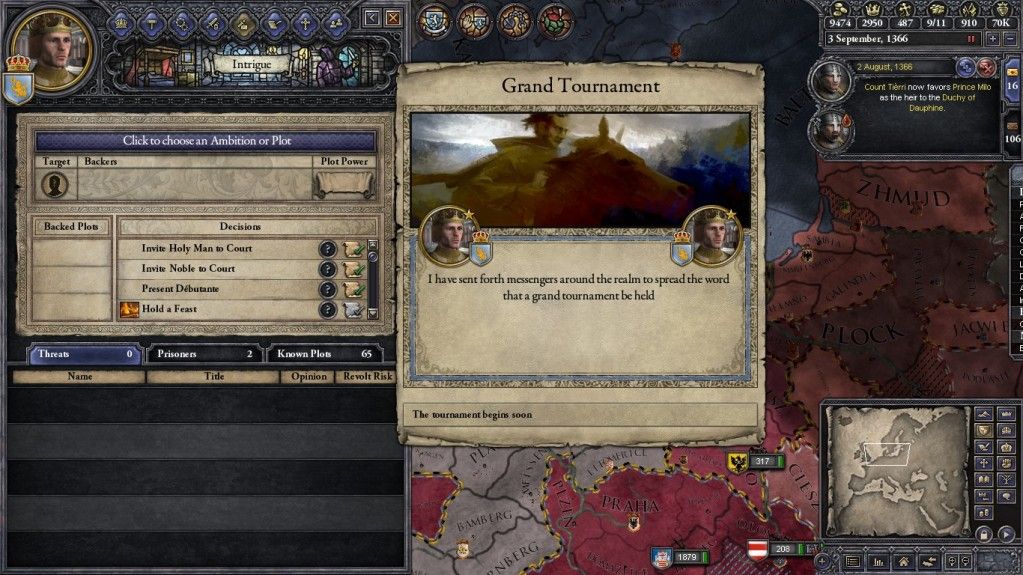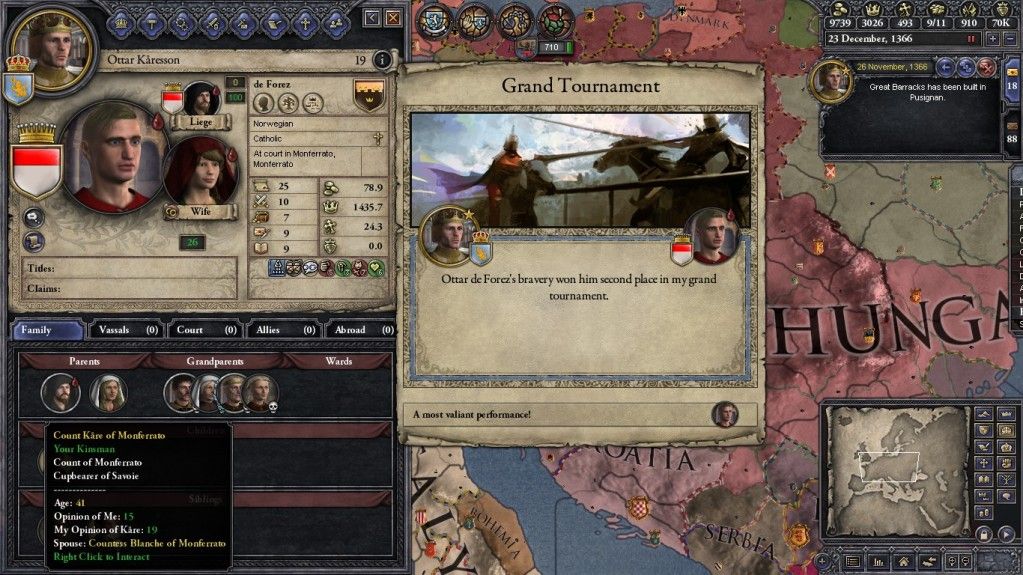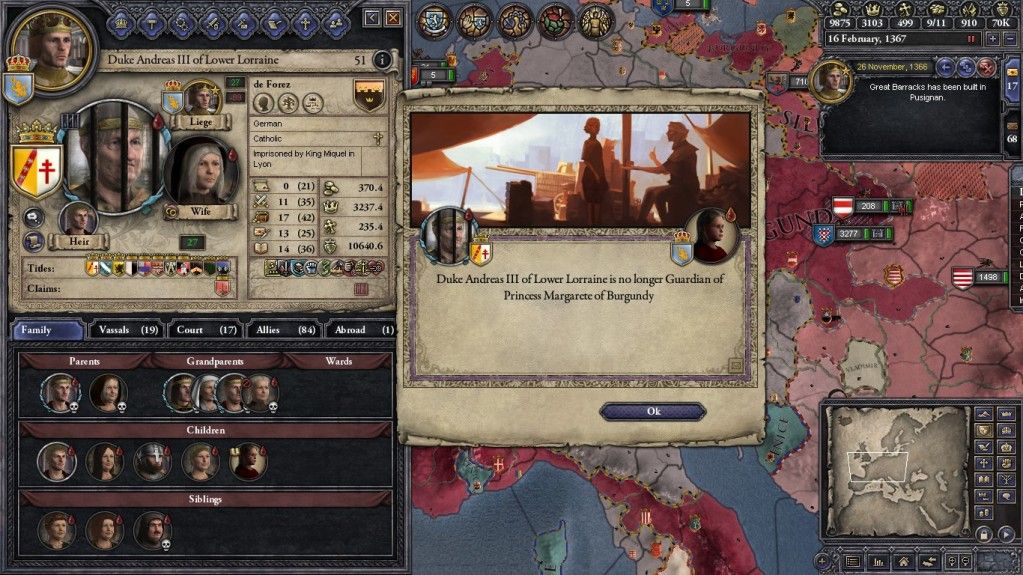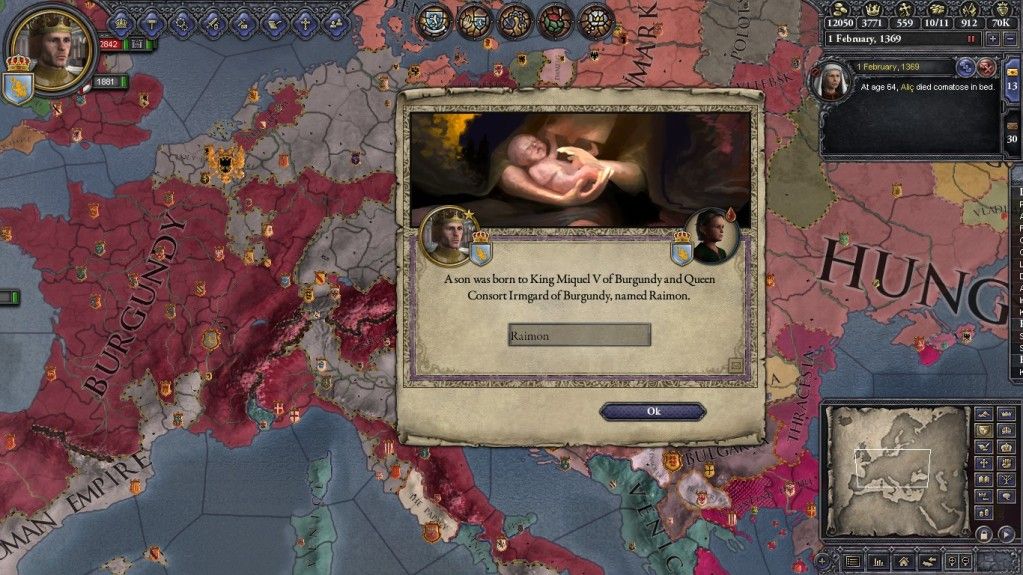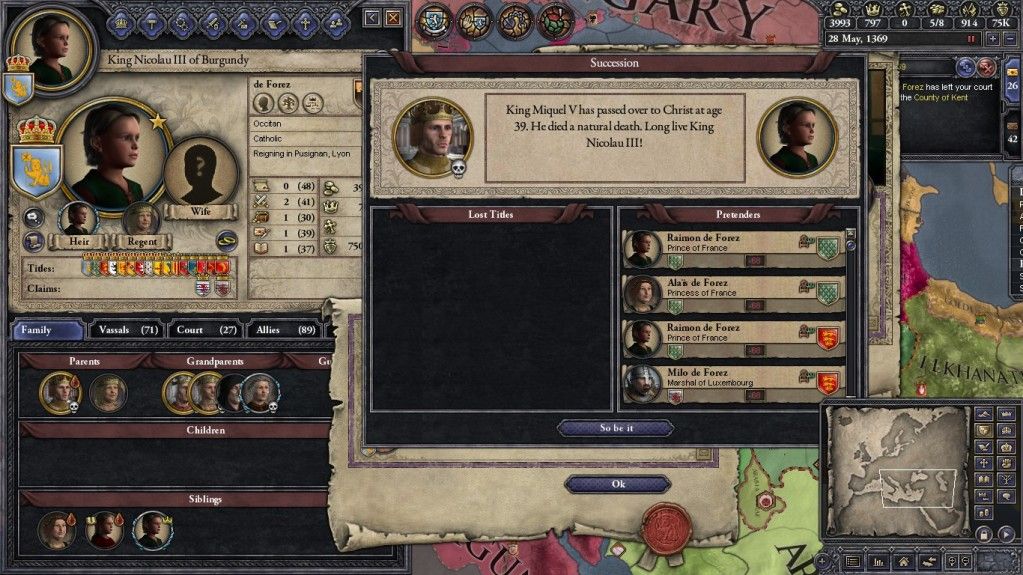Here is what the current Realm layout looks like in the world a little after the death of Simoun de Forez:
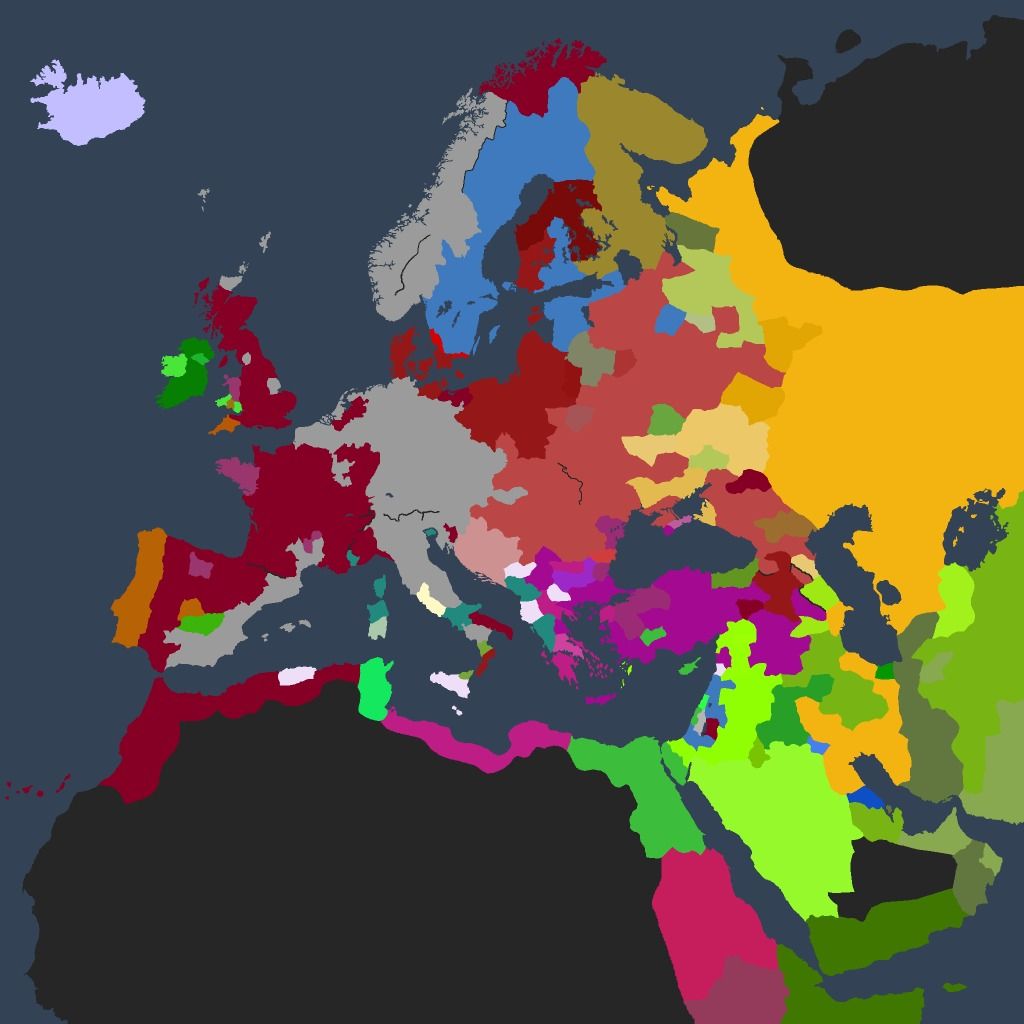
And then the Dynastic Layout:
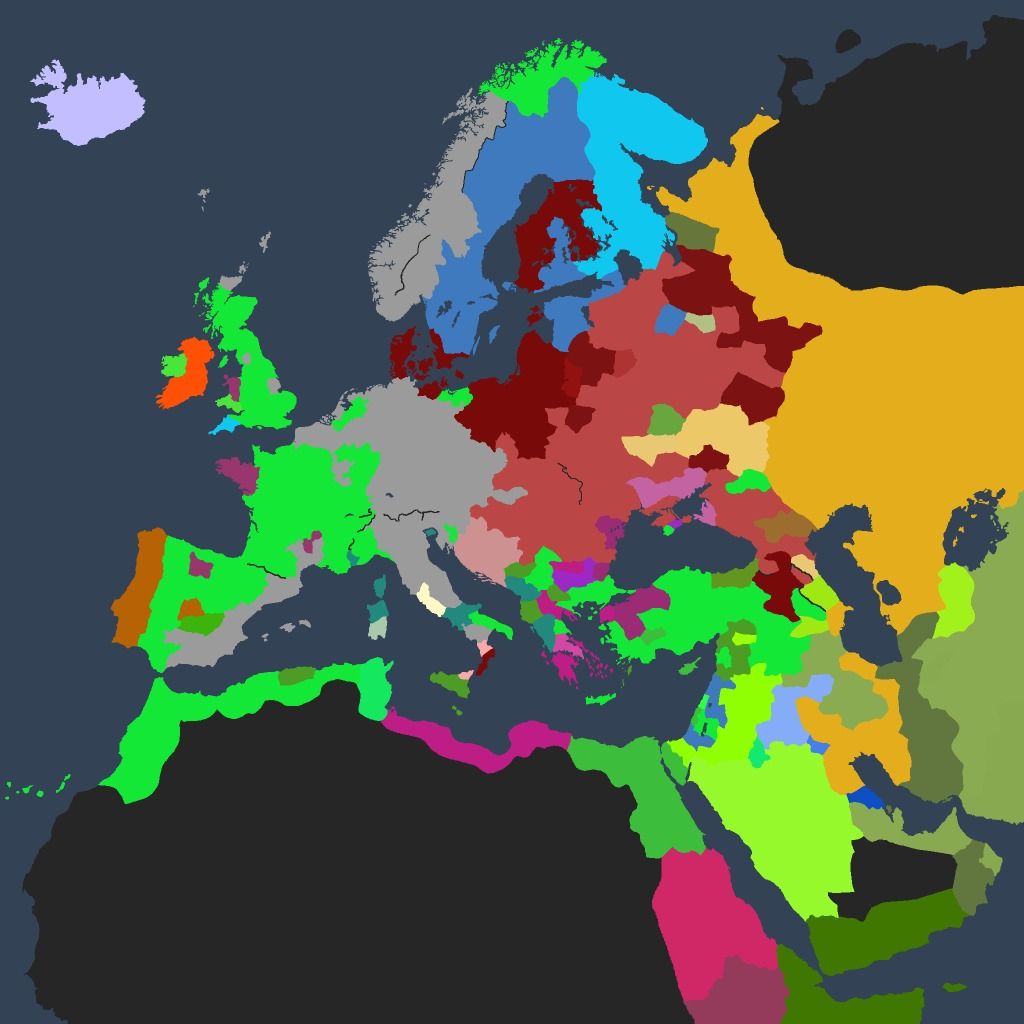
I like the dynastic layout a bit better as it shows the de Forez's in bright green so alot easier to see and read on that one. There's been a few really odd inheritances as of late that you can kind of see on the maps. One being that little green chunk bordering the GH, no idea how we inherited that County or even what its name is but it belongs to Burgundy apparently. Also a weird thing happened where a Duke of mine inherited Mesopotamia from a relative in the ERE, so it appears the ERE branch and Burgundian branch of the family are meshing into each other. And well theres been a breakout of incompetent inbreds within the realm as of late.
so alot easier to see and read on that one. There's been a few really odd inheritances as of late that you can kind of see on the maps. One being that little green chunk bordering the GH, no idea how we inherited that County or even what its name is but it belongs to Burgundy apparently. Also a weird thing happened where a Duke of mine inherited Mesopotamia from a relative in the ERE, so it appears the ERE branch and Burgundian branch of the family are meshing into each other. And well theres been a breakout of incompetent inbreds within the realm as of late.
Also noteworthy is the fact that Iberia has almost been subjugated, the Reconquista is almost a complete success, a Crusade to reinstate Portugal will be taking place soon, and well mopping up of the rest of the little counties will follow after.
Final note on the maps is go back and look at the state of the ERE when the de Forez's took control. It was almost nonexistant due to rebellious vassals and independent states, not too mention the Caliphate cutting huge swaths out of it. But now most of it has been retaken as well. And this time not for the Orthodox faith but rather for Catholicism as us de Forez's are a loyal bunch to our Pope. Makes me wonder what would have happened if my dynasty hadn't seized control of the ERE from the Komnenos family. Would an Empire even be there anymore???
Hope you enjoy the map update, and feel free to comment to your heart's content

And then the Dynastic Layout:

I like the dynastic layout a bit better as it shows the de Forez's in bright green
Also noteworthy is the fact that Iberia has almost been subjugated, the Reconquista is almost a complete success, a Crusade to reinstate Portugal will be taking place soon, and well mopping up of the rest of the little counties will follow after.
Final note on the maps is go back and look at the state of the ERE when the de Forez's took control. It was almost nonexistant due to rebellious vassals and independent states, not too mention the Caliphate cutting huge swaths out of it. But now most of it has been retaken as well. And this time not for the Orthodox faith but rather for Catholicism as us de Forez's are a loyal bunch to our Pope. Makes me wonder what would have happened if my dynasty hadn't seized control of the ERE from the Komnenos family. Would an Empire even be there anymore???
Hope you enjoy the map update, and feel free to comment to your heart's content



